Latest News
A report of a current event, knowledge, information.

Dec 25,2025
WhiteBitcoin (WBTC) — Official Christmas & New Year Update
WhiteBitcoin (WBTC) — Official Christmas & New Year UpdateMajor Ecosystem Upgrade, ABC-20 Launch Date, CTE Timeline, and Exchange RoadmapDear WhiteBitcoin (WBTC) Holders, Investors, New Investors, and Believers,First of all — Merry Christmas and Happy New Year!WhiteBitcoin (WBTC) has proudly completed around 8 years of continuous journey in the blockchain space. What began as a bold vision has now evolved into a full-scale decentralized ecosystem backed by technology, community power, and long-term commitment.Today, we are excited to announce a historic milestone for the WhiteBitcoin (WBTC) project.🚀 WhiteBitcoin (WBTC) Major Update Announced — December 25, 2025WhiteBitcoin has reached yet another turning point in its revolutionary mission. We officially announce the completion of the Advance Blockchain (ABC-20) network innovation, which unlocks the next era of performance, scalability, and security.🔗 Advance Blockchain (ABC-20) — Technology Upgrade CompletedWhiteBitcoin is now fully integrated with the Advance Blockchain (ABC-20) network.This transition delivers:Faster transaction speedLower network feesHigher scalabilityEnhanced institutional-grade securityUpcoming ABC-20 releases include:* Advance Blockchain Explorer – Q1 2026* Advance Blockchain App – Q1 2026Coin Transfer Event (CTE) TimelineCTE starts: 14 February 2026 — 10:00 AM ESTCTE duration: 150 daysPurpose: migrate your existing WBTC to ABC-20 networkYou can easily transfer your WhiteBitcoin (WBTC) from VIP Wallet (VIP Blockchain) to Advance Blockchain (ABC-20).Supported WalletsYou will be able to use:Advance Blockchain WalletTrust WalletMetaMaskBinance Walletand 100+ multi-chain trusted wallets🔁 Important Transaction Policy UpdateWhiteBitcoin (WBTC) will now only support 1:1 BTC transaction pairing.Support for the following chains will be discontinued:BCHBSVBTGReason:weak adoptionlow innovationinactive community supportThis decision strengthens:network integrityprice transparencyalignment with Bitcoin’s original economic principles💱 Conversion, Liquidity & Exchange AccessAfter the Coin Transfer Event ends (after 150 days):✔ WhiteBitcoin (WBTC) can be sold via major DEX platforms✔ Conversion to fiat and other cryptocurrencies will be supported✔ Multiple trading pairs will be availableCEX Listing RoadmapFrom Q2 2027 to Q4 2027, plans include listing on major exchanges such as:BinanceBybitPoloniexBisafeAI ExchangeMultiple global DEX platforms⚠ Early listing may occur depending on:market momentumpartner readinessregulatory environment🧭 VIP Affiliate Program — Next Generation ModelThe advanced-level VIP Affiliate Program (VIP Wallet) will restart on 22 June 2026.A brand-new affiliate structure will launch after CTE completion, featuring:Block Matching Affiliate RewardsStacking Affiliate with Multi-Layer IncomeMulti-Crypto Portfolio ToolsMulti-Chain Affiliate DashboardThis program is designed for:professional network buildersglobal marketerslong-term ecosystem partners🎯 Unique Technology Vision — What Makes WhiteBitcoin Different?WhiteBitcoin is not trying to copy other coins — it is building its own parallel economy.Key strategic pillars:ABC-20 proprietary blockchaininstitutional-grade cross-chain compatibilityprogrammable staking architecturelong-term liquidity roadmappro-community economic structureOur mission is not temporary hype.Our mission is:✔ long-term value creation✔ real utility adoption✔ decentralized financial freedom🙏 A Message of GratitudeTo every:holderinvestordeveloperambassadorbelieverThank you for standing strong with WhiteBitcoin (WBTC).Your trust and patience are the fuel behind this project.⏭ What’s Next?As we move toward the end of 2025 and beyond, WhiteBitcoin will focus on:continuous ecosystem upgradesexpanding global crypto adoptionbuilding real-world blockchain utilitiesdelivering faster, safer, smarter technologyThe future is not just bright —The future is WHITE.Stay connected.Stay empowered.Stay ahead with WhiteBitcoin (WBTC) — building the decentralized tomorrow, today.
Read More
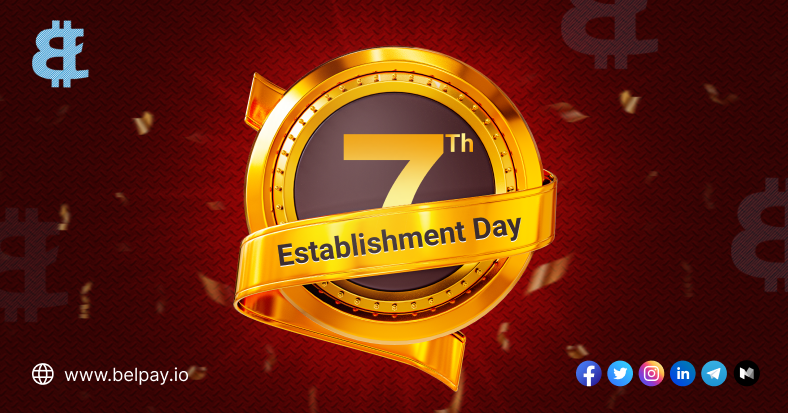
Jun 22,2025
Belpay Exchange Marks Its 7th Establishment Day with Major Announcements and Network Expansions
On the occasion of its 7th Establishment Day, Belpay.io Exchange is proud to unveil a series of impactful updates aimed at enhancing trading capabilities and strengthening our global infrastructure.We are excited to announce the successful integration of multiple blockchain networks into our platform. Users can now trade, buy, and sell cryptocurrencies across a wide range of networks, including: • Blockchain Network • ERC-20 Network • TRC-20 Network • BEP-20 Network • Advance Blockchain Network (ABC-20) • BisafeAI Chain (BAI-20)These integrations empower users to conduct seamless transactions across both traditional and emerging blockchain protocols, offering greater flexibility and diversity in asset management.Upcoming: P2P Network & Full ABC-20 + BAI-20 IntegrationIn our commitment to decentralization and financial accessibility, Belpay is in the final phase of integrating Peer-to-Peer (P2P) functionality to support global fiat deposits and withdrawals. Additionally, the Advance Blockchain (ABC-20) and BisafeAI Chain (BAI-20) will soon be fully functional, enabling users to transact more efficiently with next-gen blockchain technology.During the finalization and testing phases post-ABC-20 network public launch and CTE completion, some delays may occur in deposit and withdrawal functions. These are short-term measures to ensure long-term efficiency, transparency, and a more secure user experience.WhiteBitcoin (WBTC) Now on Belpay – Major Milestones AheadWe’re thrilled to confirm that WhiteBitcoin (WBTC) is already listed on Belpay Exchange, operating on a semi-public blockchain. Following the full public release of ABC-20 in Q3–Q4 2025, WBTC withdrawals and deposits will be smoother and fully automated.Looking further ahead to Q2–Q4 2027, WhiteBitcoin (WBTC) is poised for strategic expansion with planned listings on major global exchanges such as Binance, Bybit, BisafeAI Exchange, and more. These collaborations will greatly enhance liquidity, visibility, and trading opportunities for WhiteBitcoin (WBTC) holders.Regulatory Landscape & User KYC RolloutWe acknowledge the challenges posed by the Securities and Exchange Commission (SEC) and evolving global regulations, which have delayed certain updates across many platforms—including ours. Despite this, all user funds remain safe and secure.To comply with global standards and ensure uninterrupted access, we will begin KYC verification for users across all countries immediately before or after the ABC-20 public launch and CTE milestone. This will streamline onboarding and support broader adoption.⸻Gratitude to Our CommunityWe would like to express our sincere appreciation to every investor, holder, and supporter of WhiteBitcoin (WBTC), Belpay Exchange, and the VIP Affiliate Wallet. Your trust and belief have powered our journey and success.Here’s to the next chapter of innovation, expansion, and unstoppable growth!
Read More

Jun 22,2025
WhiteBitcoin (WBTC) Major Update Announced on June 22, 2025
WhiteBitcoin (WBTC) has reached yet another pivotal milestone in its revolutionary journey through the blockchain space. Today, we are proud to officially announce a significant update that marks the beginning of a new era for WhiteBitcoin (WBTC) and its growing global community.⸻Advance Blockchain (ABC-20) Network Innovation CompletedWhiteBitcoin has successfully completed its full integration with the Advance Blockchain (ABC-20) —a critical move designed to enhance speed, scalability, and security across the network. As part of this integration: • The Advance Blockchain Explorer and Advance Blockchain App will launch in Q3 2025. • Coin Transfer Event (CTE) will begin soon, allowing users to migrate their existing WhiteBitcoin (WBTC) to the Advance Blockchain using VIP Wallets. • Users will have 150 days to complete this migration and secure their upgraded WhiteBitcoin (WBTC) assets.⸻Exclusive Transaction Policy UpdateAs part of our strategic future planning, we will now support only 1:1 Bitcoin (BTC) transactions via WhiteBitcoin (WBTC). We will discontinue support for BCH, BSV, and BTG, due to underperformance and lack of active community engagement in those chains.This shift will ensure higher transaction integrity, increased network efficiency, and better alignment with Bitcoin’s core principles.⸻Future Conversion Options & Exchange AccessPost-CTE completion (after 150 days): • Users can convert WhiteBitcoin (WBTC) into fiat currencies or other crypto assets via Belpay Exchange and major DEX platforms. • From Q2 2027 to Q4 2027, we plan to list WhiteBitcoin (WBTC) on major global exchanges, including: • Binance • Bybit • Poloniex • BisafeAI • All major DEXs with multiple trading pairs • Early listing may occur depending on market momentum and partner readiness.⸻Strengthening the WhiteBitcoin (WBTC) Community Through InnovationThe WhiteBitcoin (WBTC) community has been the driving force behind every major leap, and the VIP Affiliate Program continues to be a key part of our growth strategy. Now, we’re excited to announce: • The New Generation VIP Affiliate Program will launch after the CTE. • It will feature: • Block Matching Affiliate • Stacking Affiliate with Multi-Layer Rewards • Multi-crypto portfolio and multi-chain affiliate toolsThis structure empowers members to earn actively while expanding the reach of WhiteBitcoin (WBTC) in a decentralized ecosystem.⸻A Message of GratitudeTo our community of believers, developers, ambassadors, and partners: thank you. Your dedication has powered WhiteBitcoin (WBTC) from its early days to this powerful new chapter.⸻What’s Next?As we step confidently into the second half of 2025, WhiteBitcoin (WBTC) is focused on: • Continuous ecosystem upgrades • Global crypto adoption initiatives • Stronger security, seamless usability, and broader utilityThe future is not just bright — it’s White.Stay updated. Stay empowered. WhiteBitcoin (WBTC) is building the decentralized tomorrow, today.
Read More
.png)
Feb 15,2025
WhiteBitcoin(WBTC) – Celebrating 7th Years of Success & a Future of Growth!
WhiteBitcoin(WBTC) – Celebrating 7th Years of Success & a Future of Growth!We are thrilled to announce that WhiteBitcoin (WBTC) has successfully completed seven years of innovation, resilience, and growth in the crypto space! This journey has been nothing short of extraordinary, and it wouldn’t have been possible without the unwavering support of our strong and ever-growing community.Building a Stronger WBTC CommunityOver the years, we have continuously developed and expanded the WhiteBitcoin (WBTC) community through our VIP Affiliate Program, which has played a significant role in bringing more enthusiasts, investors, and believers into our ecosystem. Through this initiative, we have not only strengthened our user base but also empowered individuals to be a part of our vision for a decentralized future.However, as we step into a new phase of our journey, we would like to inform our valued community that the VIP Affiliate Program will be discontinued in Quarter 4 2026 as we shift our focus toward the next big milestone—our own blockchain!WhiteBitcoin Next Big Leap – Our Own Public BlockchainWe are currently working on making WhiteBitcoin (ABC 20) blockchain fully public, which will mark a major milestone in our roadmap. Internal integrations are already in progress to ensure a seamless transition, bringing greater security, transparency, and scalability to our network. This development will further enhance the utility and adoption of WBTC across multiple platforms.Massive Exchange Listings in Q2 2027 (or Even Earlier!)We are excited to share that in Quarter 2 of 2027, WhiteBitcoin (WBTC) will be listed on multiple leading exchanges, including:✅ Binance✅ Bybit✅ Poloniex✅ BisafeAI ✅ All major DEX platforms with multiple trading pairsThis will open up new opportunities for our community, allowing WBTC to be traded globally across both centralized and decentralized exchanges. Additionally, there is a strong possibility that we may get listed before the given date, depending on market conditions and integration progress.A Heartfelt Thank You to Our CommunityNone of this would have been possible without the incredible support of our dedicated WhiteBitcoin community. Your belief in our vision, active participation, and continued trust have fueled our growth and inspired us to keep pushing forward.As we move ahead, we are committed to bringing more innovation, stronger security, and wider adoption for WBTC, ensuring that WhiteBitcoin remains a powerful force in the blockchain and crypto space.Stay connected, stay excited, and let’s shape the future together!
Read More
.webp)
Aug 28,2024
XRP News Today: Amid the volatility of the cryptocurrency market, Ripple awaits the SEC's next move.
Important Points:The overall market capitalization of cryptocurrencies drops to $2.041 trillion as XRP loses 3.40% in the midst of a wider sell-off.Talk of an appeal in the SEC v. Ripple case is heating up; this could effect the stability of the price of XRP.The SEC's decision to file an appeal will determine how much XRP will cost; in the upcoming weeks, volatility is predicted.XRP Falls During a Cryptocurrency Sell-OffAfter dropping 2.20% the day before, XRP fell 3.40% on Tuesday, August 27, finishing at $0.5674. XRP tracked the overall decline in the cryptocurrency market, which experienced a 5.30 percent decline in market capitalization to $2.041 trillion.Better than anticipated Investor expectations on repeated 2024 Fed rate cuts were put to the test by US economic data, which sparked a widespread sell-off in cryptocurrencies. On Tuesday, investor sentiment was impacted by US consumer confidence. Investor concerns about a hard US landing and the necessity of swift Fed rate cuts to support the economy were probably allayed by an unanticipated surge in confidence.SEC vs. Ripple: Talk of an appeal heats up ahead of the SEC closed meetingIt has been three weeks since August 7th, when Judge Analisa Torres rendered the final decision in the SEC vs. Ripple case. Regarding whether or not to file an appeal, the SEC has not said anything.Pro-crypto attorney Fred Rispoli reopened the appeals debate on Tuesday by posing the question,"Can any securities lawyers provide me with an answer on the likelihood of an SEC vs. Ripple appeal? If Ripple prevails on all fronts against the SEC, would the SEC be required to pay statutory interest on it as well?"James Farrell, general counsel at AscendEX and a former member of the SEC,“Saying that typically Ripple would post a bond securing the decision and delay payment while an appeal was pending. The cost of the bond would normally be assessed against the SEC in the event of a loss as part of the appeal's costs under FRAP 39 (at the 2d Circuit is discretion, just like any bill of costs).”Farrell continued,“Even more complicated if the Second Circuit remands for a new trial—for instance, if it determines that certain factual concerns should have prevented the award of summary judgment. All of this presupposes a cross-appeal. Because if Ripple does not file a cross-appeal, it is essentially admitting that it owes $125 million and that the appeals court is powerless to address matters that are not before it.”Farrell's remark emphasized the danger the SEC would run if it decides to appeal the Ripple case's decisions. The decision that Ripple sold unregistered XRP in violation of US securities laws may be contested by a cross-appeal filed by Ripple. A cross-appeal might undermine the SEC's regulatory strategy by creating a precedent for XRP sales.A SEC Appeal Could Happen Soon?On Thursday, August 29, the SEC will have a secret meeting where the Ripple matter may come up for discussion. An appeal might compel Ripple to file a cross-appeal and drag out the litigation until 2025.Early October is when the 60-day appeal deadline finishes, therefore the appeals process will go on even after the US presidential election. It might be necessary for the SEC to think about the potential effects of an administration change.The Future of XRP Price Depends on SEC ActionThe SEC's preparations for an appeal will determine price movements. The SEC's appeal might cause XRP to drop below $0.40. On the other hand, if the SEC decides not to appeal the case's decisions, XRP may aim to recover to $1.00. The July 2023 Programmatic Sales of XRP judgment caused XRP to spike from $0.4696 to a high of $0.9327.Investors should be on the lookout because news about appeals will probably affect XRP price movements. Keep yourself informed about XRP and the wider cryptocurrency industry by following our most recent news and analysis.Price Action of XRPEvery Day ScheduleBullish price indications were sent by XRP as it stayed above the 200-day and 50-day moving averages.A bounce back to $0.6000 might be supported by a breakout from the 50-day EMA. Moreover, a bounce back to $0.60 would portend a move up toward the resistance level at $0.6609 and the high of $0.6434 on August 7.Updates pertaining to SEC vs. crypto cases and SEC activity should be taken into account.On the other hand, a decline beneath the 200-day and 50-day EMsA would indicate a positive trend reversal and a potential decline below $0.50.At 46.54 on the 14-day RSI, XRP might drop below $0.50 before going into oversold territory.
Read More
.webp)
Aug 01,2024
Analyst: Spot Ether ETFs Debut Strong, But They Fall Short of Bitcoin ETFs
On July 23, the first trading day, spot Ethereum exchange-traded funds (ETFs) experienced net inflows over $100 million. Though noteworthy, this excellent start pales in comparison to the remarkable launch of Bitcoin ETFs in January. According to analysts, Ether ETFs may encounter greater difficulties in attracting the interest of conventional investors.10% to 20% of the initial inflows for Bitcoin ETFs were realised by Ether ETFs on their first day of operation. Given Bitcoin's higher market capitalisation, this result is expected, but it raises questions about Ether's suitability for conventional investors. An important issuer of both Bitcoin and Ethereum exchange-traded funds (ETFs), Adrian Fritz, head of research at 21Shares, stated that "the Bitcoin Spot ETF has set new standards as the most successful ETF launch in financial history."Fritz noted that while Ethereum's value proposition is more complicated and will require more educational efforts to draw investors, Bitcoin's story as an emergent store of wealth is more straightforward and well-known. Fritz is still confident that Ethereum has the ability to attract a sizable amount of institutional interest in spite of these obstacles.The market's early reservations about Ether ETFs were allayed by the robust inflows that followed their introduction. Within 24 hours of the ETFs' listing, the Ethereum Volmex Implied Volatility (EVIV) index, which gauges the 30-day expected volatility of ETH, fell by 4 points to approximately 65, as reported by CoinMarketCap. The market had been pricing in uncertainty prior to the ETF launch, but Volmex Finance founder Cole Kennelly said that the "volatility crush" that followed indicated that ETF flows would stabilise ETH spot prices.According to Fritz, Ethereum's value proposition is more complicated and will require more marketing in order to draw in investors than Bitcoin's narrative of a growing store of value, which is simpler and more well understood. Fritz maintains his optimism over Ethereum's ability to attract substantial institutional investment in spite of these obstacles.The market's concerns about Ether ETFs' introduction were lessened by the funds' robust initial inflows. Within 24 hours of the ETFs' listing, the 30-day expected volatility of Ethereum was measured by the Ethereum Volmex Implied Volatility (EVIV) index, which fell by 4 points to approximately 65, according to CoinMarketCap. The "volatility crush" that followed the ETF introduction, according to Cole Kennelly, creator of Volmex Finance, indicates that ETF flows may stabilise ETH spot markets. Prior to the ETF debut, the market had been pricing in uncertainty.
Read More

Jul 19,2024
Important Bitcoin (BTC) Development Solana's (SOL) Next Resistance Unveiled Ahead of $70,000, XRP $1 Rally: Is This Goal Achievable?
U.Today-XRP's remarkable 50% increase is undoubtedly raising the prospect that we may see the $1 mark on our screen soon. The asset has had significant growth and may see further gains as a result of the global market reversal.As of late, XRP has been rising and has little trouble breaking through several obstacles. The current surge in trade activity supports the asset's optimistic outlook. With XRP currently trading at $0.61, the next major psychological target is the $1 milestone.Achieving this threshold would be significant for the XRP community and might signal a strong rebound after a protracted period of consolidation. XRP's bullish momentum stems from a number of causes. First off, the overall bullishness surrounding the cryptocurrency sector has fostered favourable conditions for XRP's price increase.As long as Bitcoin and Ethereum show strength, altcoins like XRP will benefit from the overall market upswing. Furthermore, new rumours regarding XRP could significantly increase its value. A favourable outcome in this instance could act as a catalyst, driving XRP through the roof.The journey of BitcoinAround $65,000, a crucial barrier to break through, is where Bitcoin is about to make a breakthrough. With the market moving at its current rate, the digital gold might surprise us and perform well enough to rise back above $70,000. But some things might have to line up.Most importantly, the adoption of the Ethereum ETF might be revolutionary. A significant amount of institutional capital is anticipated to enter the market once an ETF is approved, providing much-needed support for Bitcoin. Such a breakthrough may easily propel Bitcoin above the $70,000 mark. Furthermore, the entire picture of Mt. Gox remains unknown. Given the enormous amount of Bitcoin the exchange owns, any significant liquidation might drive down prices.Resilience is being shown by both the price and the trading volume, suggesting that investors are closely monitoring the next big move. The fact that Bitcoin has managed to stay above the 50 EMA, which has shown to be a strong resistance level, is positive.Solana has higher goals.Solana is about to reach $173, which is the next significant resistance level. The present price level does, however, also line up with a historical range of consolidation, which could serve as a little barrier.Recently, Solana has shown significant bullish momentum, climbing steadily and breaking past several significant resistance levels. The 50-day moving average's upward rise indicates that market sentiment has improved. This rising trend is further supported by strong trading volumes, which point to rising investor interest in SOL.
Read More

May 30,2024
What Are VIP Web3 Wallet?
Key Takeaways:Web3 wallets are essential for navigating the world of decentralized finance, acting as gateways to interact with blockchain networks and manage digital assets.VIP Web3 wallet come in various types. Non-custodial wallets provide user autonomy, while custodial wallets offer convenience with third-party management. Advance Blockchain wallet introduces programmable features for advanced functionalities and enhanced security.Popular examples of Web3 wallets include MetaMask and Trust Wallet.Introduction:VIP Web3 wallet have emerged as essential tools for users seeking to explore the world of cryptocurrencies and decentralized finance (DeFi). In this guide, we will discuss the fundamental concepts of Web3 wallet and their different types, followed by some popular examples.What Is a VIP Web3 Wallet?VIP Web3 wallet are digital wallet designed for the world of Decentralised Finance They act as gateways for users to interact with blockchain networks and decentralized applications , providing a secure way to manage cryptocurrencies,NFCs and other digital coin.VIP Web3 Wallet vs. Crypto WalletsAlthough the two terms are often used as synonymous, not all crypto wallets are compatible with DApps and DeFi platforms. So, while both VIP Web3 and crypto wallets are used to manage cryptocurrencies, VIP Web3 wallet support a wider variety of digital assets.How VIP Web3 Wallet WorkVIP Web3 wallet are designed to provide users with full control over their digital assets. This means that users are responsible for managing theirSeed Phrases and Private Key.Typically, whenever you create a new VIP Web3 wallet, you will generate a unique seed phrase of 12 words. This is what gives total access to your crypto wallet and its private keys (used toSign and verify transactions). Do not share your seed phrase and private keys with anyone.Key Features of VIP Web3 WalletAlthough some features might differ from one wallet to another, most VIP Web3 wallet come with a set of key features:Multi-asset and multi-chain support: Support a variety of blockchain networks and digital assets, including cryptocurrencies and NFCs.Advance Blockchain and DeFi interoperability: Facilitate seamless interactions with Advance Blockchain, giving users access to DApps, decentralized exchanges, marketplaces, and other blockchain-based applications.Peer-to-peer transactions: Enable users to send and receive digital assets without the need for centralized services or intermediaries.Security: VIP Web3 wallet should offer robust security and implement encryption techniques to protect seed phrases and private keys from potential threats. Some also include notifications and warnings against potentially malicious websites and Advance Blockchain.Pseudonymity: Although most blockchain transactions are publicly available, users can create VIP Web3 wallet without sharing sensitive data or personal information.Custodial vs. Non-Custodial Web3 Wallet1. Non-custodial walletNon-custodial or self-custody wallets provide users with complete control over their assets. Popular examples include MetaMask and Trust Wallet. Non-custodial VIP Web3 wallet is considered the safest option for most traders and investors, as long as their private keys and seed phrases are kept private and secure.2. Custodial walletsCustodial wallets involve a third party managing private keys & Emails on behalf of users. The wallet you have in your VIP wallet account are example of a custodial wallet. While offering convenience, users must trust the custodian with their assets, so it’s important to choose a reliable and trustworthy Service Provider.Types of Web3 WalletsThere are multiple ways to categorize Web3 and crypto wallets. In this section, we will explore some of the most common types: hardware, web, desktop, mobile, paper, smart contract, advanced blockchain wallets. Keep in mind, however, that there are overlaps between the different categories. For example, some Web3 wallets like MetaMask & VIP WEB3 are available as both web and mobile wallets.Hardware walletsHardware wallets are physical devices that store cryptocurrency keys offline (cold storage), providing an extra layer of security. Even though they're safer from online threats, they can be a bit tricky to use and access compared to other wallets. But, if you plan to keep your crypto for a long time or have a lot of it, a hardware wallet might be a good choice. You can set up a PIN code for extra protection, and most of them let you create a backup recovery phrase in case you lose your wallet. Trezor and Ledger are popular examples of hardware crypto wallets.Web walletsWeb wallets usually operate through a browser interface, allowing users to access their cryptocurrency holdings online. Most web wallets today are also available as mobile wallets. While convenient, users must be cautious when connecting their wallets to DeFi platforms and DApps. Interacting with malicious websites or smart contracts may put your assets at risk.Mobile walletsMobile wallets operate similarly to web wallets but are specifically crafted for smartphones. They enable users to send and receive cryptocurrencies conveniently using QR codes. They also offer easy mobile access to DeFi and DApps.However, just like computers, mobile devices are susceptible to malicious apps and malware. It's advisable to secure a mobile wallet by encrypting it with a password and backing up your seed phrase (or private keys) in case of phone loss or malfunctions.MetaMask, VIP Web3 Wallet, and Trust Wallet are notable examples of mobile crypto wallets. We will cover each in more detail in the next section.Advance Blockchain walletAdvance Blockchain wallet are managed by Advance Blockchain on the blockchain. This wallet introduces programmable, self-custodial accounts and enables advanced functionalities. Unlike traditional wallets, advanced blockchain wallet allow users to define rules and conditions for transactions, automate financial activities, and enhance security through programmable logic. Advanced blockchain wallets often leverage blockchain technology, providing users with decentralized control over their funds and facilitating integration with DeFi applications. Security features such as multi-signature requirements, time locks, and upgradability are common aspects of advanced blockchain wallets, making them versatile tools for managing and interacting with cryptocurrencies.Desktop walletsDesktop wallets were more common in the early years of Bitcoin, WhiteBitcoin and cryptocurrencies. They are software applications installed on your computer, providing complete control over your cryptocurrency keys. Security relies on the user's computer integrity, and regular backups of the wallet data are essential to prevent loss.Paper walletsPaper walletsare often discouraged and considered by many obsolete. They involve the physical printing or writing of cryptocurrency addresses and private keys on paper. Offering offline storage, they are resistant to online hacking but require careful handling and secure storage to prevent physical damage or loss.Examples of Web3 WalletsMetaMaskMetaMask stands as one of the most popular non-custodial Web3 wallets, known for its compatibility with Ethereum and various EVM-compatible blockchains, such as BNB Chain, Polygon, Avalanche, Arbitrum, and many others.Users can use MetaMask to interact with DApps, manage digital assets, and engage in token swaps. MetaMask prioritizes user autonomy, as it doesn't control private keys, offering a secure and intuitive experience for both beginners and experienced users.VIP Web3 WalletTheVIP WEB3 Wallet integrated into the VIP Wallet app, targets both new and experienced DeFi users. Leveraging advanced blockchain technology, it enhances cryptographic security by eliminating the need for a single storage location for private keys. The wallet's Two "key shares" are distributed across the Web3 Wallet, cloud storage, and the user's device. This approach ensures enhanced security and reduced risks of single points of failure.VIP Web3 Wallet FeaturesEasy setup: Quick creation through the VIP Wallet app with seed phrases and private keys.Convenience: Seamlessly connected to VIP Wallet Bridge and other service providers for easy coin swaps and exploration of DApps.Security measures: Wrong address protection and identification of potentially malicious Advance Blockchain, with transactions controlled by Advance Blockchain (ABC20) technology.Self-custody: Encrypted by Two "key shares" and a password, offering complete autonomy over assets.Trust WalletTrust Wallet another prominent non-custodial wallet, offers a seamless mobile experience for managing cryptocurrencies. Supporting a wide range of blockchains, Trust Wallet enables users to store assets, explore DApps, and participate in DeFi activities. Its user-friendly interface and strong security measures make it an ideal choice for mobile users seeking both convenience and protection.Closing ThoughtsWeb3 wallets have become indispensable tools for those delving into cryptocurrencies and DeFi, allowing users to engage with blockchain networks and decentralized applications (DApps). Whether opting for MetaMask, VIP Web3 Wallet, or Trust Wallet, users should always keep their seed phrases and private keys confidential and safe.
Read More

May 30,2024
What Is Web3 and Why Does It Matter?
Web3, or Web 3.0, is the next generation of internet services characterized by decentralized protocols, blockchain technologies, and Coin/token-based economies. It aims to create a more open, transparent, and user-centric internet. Here’s a closer look at what Web3 entails and why it matters:Key Features of Web3.DecentralizationBlockchain Technology: Web3 uses blockchain to decentralize control, ensuring no single entity owns or controls the network, unlike the centralized platforms dominating Web2.Peer-to-Peer Networks: Users interact directly with each other, enhancing privacy and reducing dependency on centralized entities.Trust and Transparency:Smart Contracts: These self-executing contracts have terms directly written into code, automatically enforcing and executing agreements, which reduces the need for intermediaries and enhances trust.Immutable Ledgers: Transactions are recorded on the blockchain in an immutable and transparent manner, ensuring data cannot be altered once added.User Ownership and Control:Digital Assets and Coin/Token: Web3 allows the creation and ownership of digital assets and cryptocurrencies, giving users real ownership and control over their digital interactions and transactions.Decentralized Identity: Users maintain control over their digital identities, reducing the risks associated with data breaches and identity theft.Economic Incentives:Coin/Token Economies: Cryptocurrencies and tokens incentivize participation and contributions to the ecosystem, rewarding users for their engagement.Decentralized Finance (DeFi): Web3 includes a range of decentralized financial services, offering alternatives to traditional financial systems and enabling more inclusive financial access.Why Web3 MattersEmpowerment and Ownership:User-Centric: Web3 shifts power from centralized entities to individuals, giving them more control over their data, digital identities, and assets.Monetization: Creators and users can directly monetize their contributions without intermediaries, leading to fairer compensation models.Innovation and Inclusion:New Business Models: Web3 fosters new business models like decentralized autonomous organizations (DAOs) and decentralized applications (dApps) that were not possible under Web2.Global Access: By removing barriers associated with centralized control, Web3 provides global access to financial services, information, and digital resources.Enhanced Security and Privacy:Data Ownership: Users maintain ownership of their data, reducing the risk of breaches and misuse by third parties.Cryptographic Security: The use of cryptographic techniques enhances security, ensuring secure transactions and interactions.Reduced Intermediary Costs:Efficiency: By eliminating intermediaries, Web3 reduces transaction costs and improves efficiency, making processes quicker and more cost-effective.Direct Interactions: Users can engage in direct transactions and interactions, streamlining processes and reducing overhead costs.Challenges and ConsiderationsScalability: Current blockchain technologies face scalability issues that need addressing to handle large-scale applications and user bases.Regulation: The regulatory landscape for cryptocurrencies and blockchain is still evolving, posing potential risks and uncertainties.Usability: Web3 applications often have a steep learning curve, requiring further development of user-friendly interfaces for mass adoption.Security Risks: While blockchain itself is secure, the surrounding ecosystem (such as smart contracts and dApps) can be vulnerable to exploits and hacks.ConclusionWeb3 represents a transformative shift in how we interact with the internet, promising greater decentralization, security, and user empowerment. Despite the challenges, the potential benefits of a more open, user-centric, and equitable internet make Web3 a critical development in the digital landscape. As the technology matures, it is likely to have profound implications for various aspects of society, from finance and governance to social interaction and digital content creation
Read More
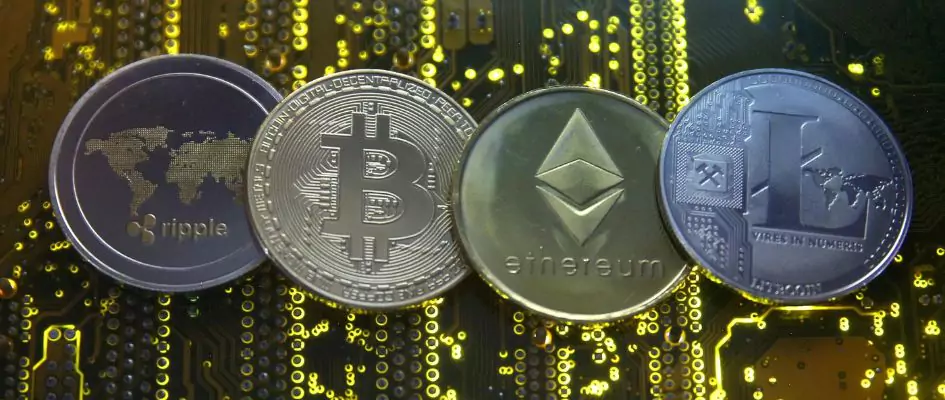
Mar 29,2024
Cryptocurrency Price Today: Bitcoin Exceeds $70,000, with Memecoin dogwifhat Emerging as the Leading Gainer
Quick analysis of cryptocurrency prices on March 29: The market value increased to $2.65 trillion globally.After a day of decline, Bitcoin (BTC), the oldest and most valuable cryptocurrency in the world, was able to surpass the $70,000 threshold. There was a mixed bag of red and green for several well-known altcoins, including as Litecoin (LTC), Dogecoin (DOGE), Ethereum (ETH), Ripple (XRP), and Solana (SOL). Among all of them, Memecoin dogwifhat (WIF) saw the largest rise, rising more than 22% in a single day. With a 24-hour decline of more than 5 percent, Aptos (APT) emerged as the largest loser of the group.At the time of writing, the value of the entire cryptocurrency market was $2.65 trillion, a gain of 1.29 percent in a day.Bitcoin (BTC) Price TodayAccording to CoinMarketCap, the price of bitcoin was $70,476.70, representing a gain of 1.21 percent in a day.Ethereum (ETH) Price TodayAt the time of writing, the price of ETH was $3,565.54, up 1.51 percent in just 24 hours.Dogecoin (DOGE) Price TodayAccording to CoinMarketCap data, DOGE saw a 24-hour increase of 8.57 percent, and it is currently trading at $0.2137.Litecoin (LTC) Price TodayLitecoin experienced a 1.32 percent 24-hour decline. When I wrote this, its trading price was $94.29.Ripple (XRP) Price TodayThe price of XRP was $0.6212 after rising 1.57 percent in a day.Solana (SOL) Price TodayThe price of Solana was $188.13, a 2.33 percent increase in a day.
Read More

Feb 27,2024
Cryptocurrency Price Today: Ethereum Climbs Above $3,000, Market Cap Approaches $2 Trillion
Quick analysis of cryptocurrency prices on February 26: At $1.95 trillion, the market capitalization was global.Over the weekend, Ethereum (ETH), the second-most popular cryptocurrency after Bitcoin (BTC), broke through the $3,000 barrier and reached a 20-month high. In contrast, Bitcoin (BTC) was able to hold steady at around $51,000. There were slight declines in all other popular coins, including as Dogecoin (DOGE), Solana (SOL), Ripple (XRP), and Litecoin (LTC). The token that gained the most over the course of a day was Flare (FLR), which had a surge of more than 18%. Helium (HNT) saw the largest loss over a 24-hour period, falling by almost 5%.At the time of writing, the value of the entire cryptocurrency market was $1.99 trillion, a growth of 0.67 percent in a day.Bitcoin (BTC) Price TodayAccording to CoinMarketCap, the price of bitcoin was $51,507.28, a decrease of 0.12% over the previous day.Ethereum (ETH) Price TodayAt the time of writing, the price of ETH was $3,099.39, indicating a rise of 2.71 percent in just one day.Dogecoin (DOGE) Price TodayAs of right now, DOGE is trading at $0.08557, and according to CoinMarketCap data, it lost 0.57 percent in a day.Litecoin (LTC) Price TodayLitecoin saw a 0.11 percent 24-hour decline. When this article was written, its trading price was $69.98.Ripple (XRP) Price TodayThe price of XRP was $0.5402, down 0.92 percent in a day.Solana (SOL) Price TodayThe price of Solana was $103.58, up 0.10 percent in a day.
Read More
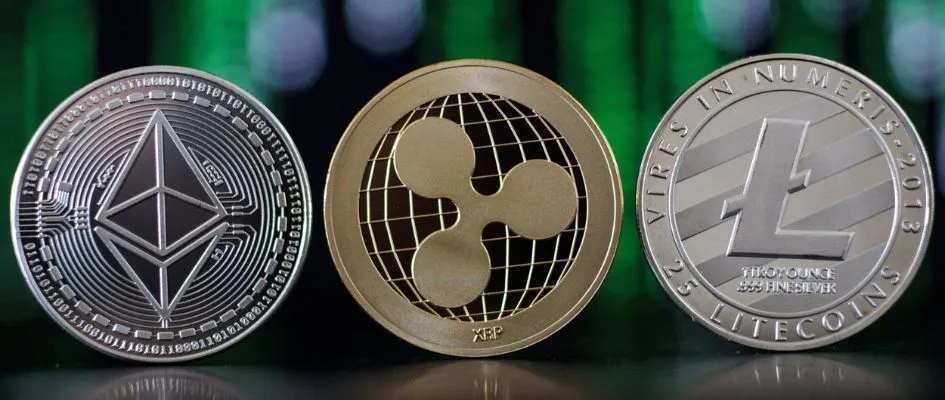
Feb 16,2024
Cryptocurrency Price Today: Bitcoin Exceeds $52,000 Ahead of the Halving Event
Quick analysis of cryptocurrency prices on February 16: The value of the world market surged to $1.96 trillion.The world's oldest and most valuable cryptocurrency, Bitcoin (BTC), surged past $52,000 early on Thursday as the eagerly anticipated BTC Halving event, which is scheduled for April 18, draws nearer. Other well-known coins, like as Litecoin (LTC), Dogecoin (DOGE), Solana (SOL), Ripple (XRP), and Ethereum (ETH), all performed well overall. The most profitable of the lot was the Stack (STX) token, which increased by more than 28% in a single day. With a 24-hour decline of more than 2 percent, PYTH, which was the largest gainer yesterday, turned into the worst loser.At the time of writing, the value of the entire cryptocurrency market was $1.96 trillion, an increase of 5.22 percent in a day.Bitcoin (BTC) Price TodayAccording to CoinMarketCap, the price of bitcoin was $52,268.18, up 5.43 percent in a day.Ethereum (ETH) Price TodayAs of this writing, the price of ETH was $2,796.20, indicating a gain of 6.02 percent in the previous 24 hours.Dogecoin (DOGE) Price TodayAccording to CoinMarketCap data, DOGE saw a 7.13 percent 24-hour spike, with a current price of $0.08703.Litecoin (LTC) Price TodayLitecoin gained 1.84 percent in a day. As of writing, its trade price was $70.40.Ripple (XRP) Price TodayThe price of XRP was $0.5543 after rising 5.53 percent in a day.Solana (SOL) Price TodayAt $116.63, the price of Solana represented a rise of 4.05 percent in a day.
Read More

Feb 15,2024
Celebrating 6 Years of Progress and Growth: Celebrating The 6th Anniversary of WhiteBitcoin (WBTC)
Dear WhiteBitcoin (WBTC) Investor & Dev Community.It is with great enthusiasm that we reveal the momentous event of WhiteBitcoin's (WBTC) 6th anniversary, which will be followed by a decade of remarkable growth. Our investors’ unwavering support, trust, and belief in us have played a crucial role in our success achieving exceptional milestones.As we commemorate this milestone, we are excited to unveil a series of groundbreaking announcements for the upcoming years: It is not just about the road map but about all the announcements and also the things coming up in the next 20 years.Q1 2024: VIP Wallet Upgrade:-Get ready for the ultimate VIP Wallet - BTC, WBTC & WEB3 experience! The updated version is scheduled to be released on the anniversary of the White Bitcoin (WBTC) and is loaded with many new features. Stay tuned for the Google Play Store release.Q2 2024: Web3 Wallet Launch:-In Q2 2024, We will launch the Web3 version of the VIP Wallet Mobile App & Web Based App, which will allow our users to utilize all the features of the VIP Wallet on both the app and the website. A user-friendly experience awaits!Q4 2024: Advance Blockchain App Launch, Future & Option Contract Launch in BELPAY.IO EXCHANGE & 1 Other Exchange:-Anticipate a game-changing moment! The introduction of an Advanced Blockchain will ease the pressure on Bitcoin transactions and encourage WBTC to be transferred on decentralized exchanges and open up unlimited prospects, WhiteBitcoin Dev Team is Start Future & Option Contract in two Exchanges.Q1 2025 - Q4 2026: NFT Platform on Advance Blockchain:-Begin the NFT journey! We will implement a new NFT platform on the Advanced Blockchain, opening new opportunities and experiences for the WhiteBitcoin (WBTC) Community.Q2 2026: 2nd Mining Halving:-Witness another milestone when we do the Mining Halving on WhiteBitcoin (WBTC) that will push us to higher levels bringing crypto to another stage of evolution.Q4 2026: Mining Code Public:-The year will end with the long-awaited Mining Code is publicly launching, enabling more Mining Partner for further participation.Q1 2027: VIP Wallet - Block Matching Affiliate Program Close & Staking Program Continue till 2038 With Reward Halving Process:-Try the development of the VIP Wallet as we are winding down the Block Matching Affiliate Program and keeping the Staking Program until 2038. All affiliates can release hold WBTC 7% Monthly and intriguing rewards are ahead.Q2 2027: WhiteBitcoin (WBTC) Being on Multiple Exchanges:-In Q2 2027, WBTC will be listed on different new global exchanges such as Binance, Coinbase, Polonex, Bitmex, ByBit, CEX.io, Bitcoin.com, Blockchain.com, Advance Blockchain and many more.Q1 2028: Public All-Type Development Code:-Discover the future with the release of public development codes.Q2 2030: 3rd Mining Halving:-Continue the journey of the 3rd Mining Halving which strengthens WBTC's place in the crypto world.Q2 2034: 4th Mining Halving:-We celebrate another milestone, the 4th Mining Halving, as evidence of our dedication to long term prosperity.Q2 2038: Last Mining Halving:-The journey ends with the final halving, where WBTC will be used to settle the transaction fees of BTC, BCH, BTG, BSV, and NFT by the Advanced Blockchain.As we keep going, we are committed to future-proofing White Bitcoin (WBTC) by adopting Web3 metaverse technology and being ready for growth and new coin distributions in years ahead.Buckle up, White Bitcoin (WBTC) family, we set for an astounding journey to break new grounds and reshape crypto through innovative technology and thrilling updates in the VIP Wallet. Buckle up for a ride you’ll never forget!
Read More

Jan 17,2024
Cryptocurrency Price Today: Bitcoin Holds, Flare Gains Almost 35%
Quick analysis of the cryptocurrency pricing on January 17: The value of the world market fell to $1.68 trillion.Bitcoin (BTC), the oldest and most valued cryptocurrency in the world, momentarily exceeded the $43,000 barrier early Tuesday, but sank down to the $42,000 level at the time of writing. Although there hasn't been as much buzz lately about Bitcoin spot exchange-traded funds (ETFs), BTC and the majority of other coins are still mostly stable and don't have any alarming swings. The token known as Flare (FLR) experienced the largest rise of all, rising by almost 35 percent in just a single day. In contrast, Aptos (APT) had a decline of more than 5 percent in a single day, making it the largest loser.As of the time of writing, the value of the entire cryptocurrency market was $1.68 trillion, an increase of 0.31 percent in a day.Bitcoin (BTC) Price TodayThe price of bitcoin was $42,894.65, up 0.83 percent in a day.Ethereum (ETH) Price TodayAt the time of writing, the price of ETH was $2,535.65, up 1.32 percent in just 24 hours.Dogecoin (DOGE) Price TodayDOGE saw a 0.02 percent 24-hour decline, with a current price of $0.08112.Litecoin (LTC) Price TodayLitecoin lost 1.81 percent in a day. As of writing, its trade price was $69.91.Ripple (XRP) Price TodayThe price of XRP was $0.5773 after falling 1.36 percent in a day.Solana (SOL) Price TodayThe price of Solana was $96.04, up 0.21 percent in a day.Quick analysis of the cryptocurrency pricing on January 16: The value of the world market fell to $1.68 trillion.Bitcoin (BTC), the oldest and most valued cryptocurrency in the world, momentarily exceeded the $43,000 barrier early Tuesday, but sank down to the $42,000 level at the time of writing. Although there hasn't been as much buzz lately about Bitcoin spot exchange-traded funds (ETFs), BTC and the majority of other coins are still mostly stable and don't have any alarming swings. The token known as Flare (FLR) experienced the largest rise of all, rising by almost 35 percent in just a single day. In contrast, Aptos (APT) had a decline of more than 5 percent in a single day, making it the largest loser.As of the time of writing, the value of the entire cryptocurrency market was $1.68 trillion, an increase of 0.31 percent in a day.Bitcoin (BTC) Price TodayThe price of bitcoin was $42,894.65, up 0.83 percent in a day.Ethereum (ETH) Price TodayAt the time of writing, the price of ETH was $2,535.65, up 1.32 percent in just 24 hours.Dogecoin (DOGE) Price TodayDOGE saw a 0.02 percent 24-hour decline, with a current price of $0.08112.Litecoin (LTC) Price TodayLitecoin lost 1.81 percent in a day. As of writing, its trade price was $69.91.Ripple (XRP) Price TodayThe price of XRP was $0.5773 after falling 1.36 percent in a day.Solana (SOL) Price TodayThe price of Solana was $96.04, up 0.21 percent in a day.
Read More

Jan 10,2024
Cryptocurrency Price Today: Brief Rally Is Caused By Erroneous US SEC Tweet About Bitcoin Spot ETFs
Quick analysis of the cryptocurrency pricing on January 10: The value of the world market fell to $1.71 trillion.The oldest and most valuable cryptocurrency in the world, Bitcoin (BTC), momentarily approached $48,000 after a fictitious tweet purporting to be from the US Securities and Exchange Commission (SEC) said that all spot BTC exchange-traded funds have the agency's approval. The tweet was promptly taken down by the SEC, which also said that its social media accounts had been hijacked. As a result, in a matter of hours, the price of Bitcoin crashed to the $46,000 range. Derivatives valued at more than $50 million were liquidated during the movement.At the time of writing, the value of the entire cryptocurrency market was $1.71 trillion, a decrease of 0.83 percent in a day.Bitcoin (BTC) Price TodayAccording to CoinMarketCap, the price of bitcoin was $46,127.84, down 1.39 percent in a day.Ethereum (ETH) Price TodayAt the time of writing, the price of ETH was $2,363.26, a 2.46 percent increase in just one day.Dogecoin (DOGE) Price TodayAccording to CoinMarketCap data, DOGE saw a 0.60 percent 24-hour decline, with a current price of $0.07986.Litecoin (LTC) Price TodayLitecoin increased by 0.87 percent in a day. As of writing, its trade price was $67.65.Ripple (XRP) Price TodayThe price of XRP was $0.5701, down 0.64 percent in a day.Solana (SOL) Price TodayThe price of Solana was $99.98, a 1.68 percent decrease in a day.
Read More

Jan 06,2024
Cryptocurrency Price Today: At $43,000, Bitcoin Stays Stable, With Celestia Becoming the Top Gainer
Quick analysis of the cryptocurrency pricing on January 6: The value of the worldwide market grew to $1.66 trillion.The world's oldest and most valuable cryptocurrency, Bitcoin (BTC), seemed to hold steady at $43,000 as investors' interest was aroused by rumors about exchange-traded funds (ETFs). All popular altcoins witnessed slight increases, including Dogecoin (DOGE), Solana (SOL), Litecoin (LTC), Ethereum (ETH), and Ripple (XRP). With a 24-hour increase of more than 18%, the Celestia (TIA) token went on to become the largest gainer of the group. In contrast, SEI had a decline of more than 10 percent in a single day, making it the largest loser.The value of the world's cryptocurrency market was $1.66 trillion at the time of writing, a 0.70 percent decline in a day.Bitcoin (BTC) Price TodayAccording to CoinMarketCap, the price of bitcoin increased by 0.99 percent in a day to $43,609.77.Ethereum (ETH) Price TodayAs of this writing, the price of ETH was $2,246.82, indicating a gain of 0.33 percent over the previous 24 hours.Dogecoin (DOGE) Price TodayAccording to CoinMarketCap data, DOGE had a rise of 0.70 percent in a day and is currently trading at $0.08294.Litecoin (LTC) Price TodayLitecoin lost 0.34 percent in a day. As of writing, its trade price was $65.37.Ripple (XRP) Price TodayThe price of XRP was $0.5772 after falling 1.04 percent in a day.Solana (SOL) Price TodayThe price of Solana was $101.34, up 0.28 percent in a day.
Read More
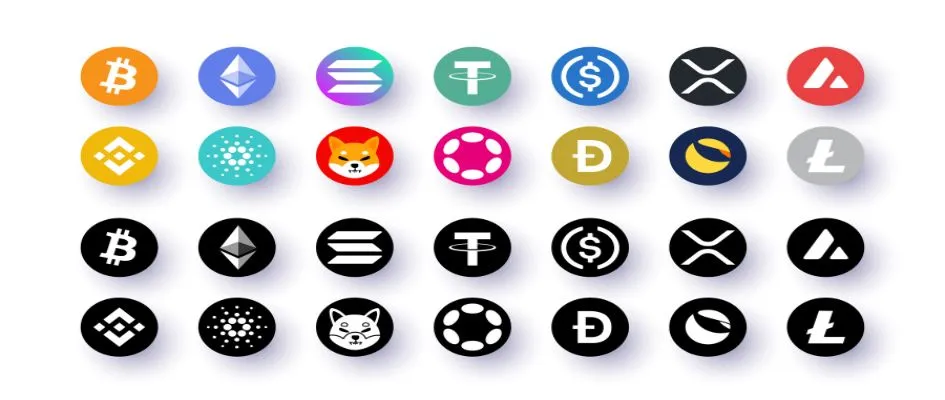
Jan 02,2024
Cryptocurrency Price Today: Beginning the New Year hovering around $42,000, FTX Token emerges as the biggest loser
Quick analysis of cryptocurrency prices on January 2nd: The value of the world market fell to $1.65 trillion.The world's oldest and most valuable cryptocurrency, Bitcoin (BTC), started 2024 with a comparatively constant price, trading at $42,000 early on Tuesday. Popular altcoins experienced a range of slight increases and decreases overall, including Dogecoin (DOGE), Solana (SOL), Ethereum (ETH), Ripple (XRP), and Litecoin (LTC). With an almost 25% 24-hour surge, the 1inch Network (1INCH) token went on to become the largest gainer of all. FTX Token (FTT) experienced a decline of more over 9 percent in a day, making it the greatest loser.As of the time of writing, the value of the entire cryptocurrency market was $1.65 trillion, a decrease of 0.36 percent in a day.Bitcoin (BTC) Price TodayAccording to CoinMarketCap, the price of bitcoin increased by 0.34 percent in a day to $42,353.25.Ethereum (ETH) Price TodayAt the time of writing, the price of ETH was $2,277.07, down 0.19 percent in the previous 24 hours.Dogecoin (DOGE) Price TodayAccording to CoinMarketCap data, DOGE experienced a 0.94 percent 24-hour decline, with its current price being $0.08906.Litecoin (LTC) Price TodayLitecoin experienced a 0.52 percent 24-hour decline. When I wrote this, its trading price was $72.52.Ripple (XRP) Price TodayThe price of XRP was $0.6121 after losing 1.46 percent in a day.Solana (SOL) Price TodayAt $102.37, Solana's price represented a rise of 0.56 percent in a day.
Read More
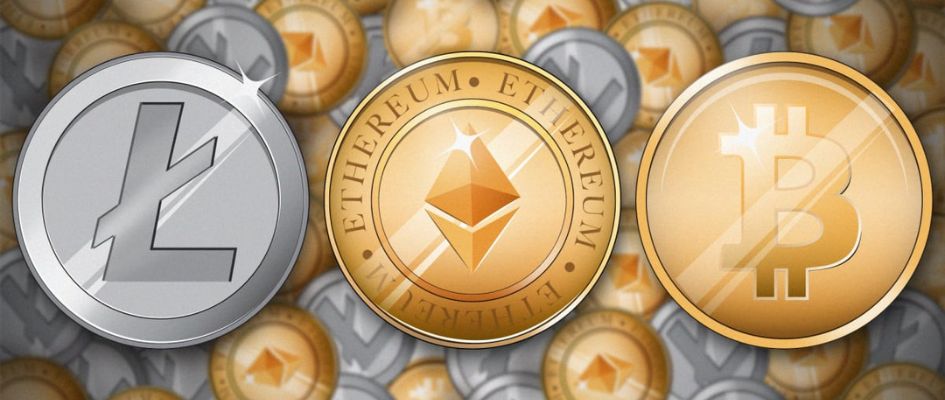
Dec 30,2023
India bans URLs of 9 crypto exchanges, including Binance, for non-compliance with anti-money laundering laws
The Financial Intelligence Unit has sent a show cause notice to nine offshore cryptocurrency exchanges after they were allegedly found to be operating illegally in India by not complying with the country's anti-money laundering laws.In ShortFIU has sent an advisory notice to 9 cryptocurrency exchanges.FIU advises MeitY to block URLs of 9 cryptocurrency exchanges.All 9 cryptocurrency exchanges have been closed due to non-acceptance of anti-money laundering laws in India.The Financial Intelligence Unit (CRF), under the Ministry of Finance of India, has issued a warning notice to 9 offshore crypto exchanges and requested the Ministry of Electronics and Information Technology (MeitY) to block their URLs in India. The action was taken for alleged non-compliance with India's anti-money laundering laws. According to the notification sent by FIU, these 9 crypto exchanges, including Binance and Kucoin, are operating illegally in India. The nine exchanges that received the notification due to the announcement include Binance, Kucoin, Huobi, Kraken, Gate.io, Bittrex, Bitstamp, MEXC Global and Bitfenex.“As part of the compliance process against offshore companies, the Financial Intelligence Unit of India (FIU IND) has issued compliance notification notices to the VDA SPs under section 13 of the Prevention of Money Laundering Act 2002. (PMLA),” the presentation reads.
Read More
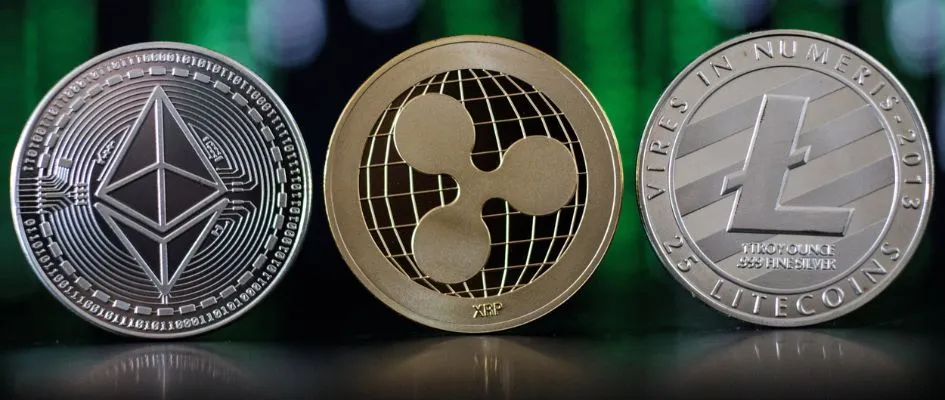
Dec 27,2023
Cryptocurrency Price Today: Bitcoin Holds at $43,000, ORDI Increases by Almost 55%
Quick analysis of cryptocurrency prices on December 27: The value of the worldwide market grew to $1.68 trillion.The world's oldest and most valuable cryptocurrency, Bitcoin (BTC), was able to hold above the $43,000 threshold early on Tuesday. All of the well-known cryptocurrencies, such as Dogecoin (DOGE), Litecoin (LTC), Ripple (XRP), Solana (SOL), and Ethereum (ETH), performed well. ORDI (ORDI) rose by about 55 percent in a single day, making it the largest gainer within the group. THORChain (RUNE), on the other hand, saw an almost 5% 24-hour decline, making it the biggest loser.At the time of writing, the value of the entire cryptocurrency market was $1.68 trillion, a gain of 1.15 percent in a day.Bitcoin (BTC) Price TodayAccording to CoinMarketCap, the price of bitcoin was $43,463.77, up 0.72 percent in a day.Ethereum (ETH) Price TodayAt the time of writing, the price of ETH was $2,268.95, a decrease of 0.33 percent over the previous 24 hours.Dogecoin (DOGE) Price TodayAccording to CoinMarketCap data, DOGE saw a 1.68 percent 24-hour increase in price, with a current value of $0.09404.Litecoin (LTC) Price TodayLitecoin gained 1.74 percent in a day. As of writing, its trade price was $72.50.Ripple (XRP) Price TodayThe price of XRP was $0.6381 after rising 3.64 percent in a day. WazirX reported that the price of ripple was Rs 55.75.Solana (SOL) Price TodayThe price of Solana was $119.18, a 6.49 percent increase in a day.
Read More

Dec 20,2023
Cryptocurrency Price Today: For the second straight day, SEI is the top gainer as Bitcoin falls below $43,000
Quick analysis of cryptocurrency prices on December 20: The value of the world market fell to $1.59 trillion.The world's oldest and most valuable cryptocurrency, Bitcoin (BTC), fell below $43,000 early on Wednesday. All popular altcoins experienced slight losses, including Dogecoin (DOGE), Litecoin (LTC), Ripple (XRP), Solana (SOL), and Ethereum (ETH). With a gain of more than 12 percent in a day, the SEI token continued to be the top performer of the group for the second day running. Memecoin BONK continued to be the largest loss, falling more than 17% in a single day.At the time of writing, the value of the entire cryptocurrency market was $1.59 trillion, a decrease of 1.52 percent in a day.Bitcoin Price TodayAccording to CoinMarketCap, the price of bitcoin was $42,550.41, a decrease of 1.22 percent in a day. As per the Indian exchange WazirX, the current value of Bitcoin was Rs 37.35 lakh.Ethereum Price TodayAt the time of writing, the price of ETH was $2,190.71, a decrease of 2.01% over the previous 24 hours. The price of Ethereum in India was Rs 1.93 lakh, according to WazirX.Dogecoin Price TodayDOGE, which is presently trading at $0.09095, saw a 2.19 percent 24-hour loss, according to CoinMarketCap data. The price of Dogecoin in India was Rs 8.08, according to WazirX.Litecoin Price TodayLitecoin experienced a 0.42 percent 24-hour decline. It was trading at $70.81 at the time this was written. In India, the cost of LTC was Rs 6,188.05.Ripple Price TodayThe price of XRP was $0.6094 after losing 0.55 percent in a day. WazirX reported that the price of ripple was Rs 53.35.Solana Price TodayThe price of Solana was $75.04, a decrease of 0.87 percent in a day. The price of SOL in India was Rs 6,563.62, according to WazirX.
Read More

Nov 20,2023
Crypto Week Ahead: Bitcoin-Compatible The Argentinean President Javier Milei's victory brings about a much-needed price rally
The price of Bitcoin (BTC) reached a high of $37,878.59 during the last seven days.The most popular and valuable cryptocurrency in the world, Bitcoin (BTC), broke through the $37,000 mark this morning. This increase in the value of Bitcoin followed the successful outcome of the Argentine presidential election, won by Javier Milei, who is well-known for his support of Bitcoin. Ethereum (ETH) had a significant increase as well, breaking beyond the $2,000 barrier. The boost in market interest that followed Fidelity's announcement that it intended to develop an Ethereum exchange-traded fund (ETF) was blamed for this spike in Ethereum's value.Readers should be aware that coin prices and the cryptocurrency market as a whole are very erratic before continuing. It is impossible to predict with certainty how cryptocurrencies will perform in the future. The purpose of this article is to assist investors in staying abreast of the most significant events that have already occurred, as well as some noteworthy forthcoming events and current market circumstances. Before taking any calls, investors are recommended to conduct their own research.The Weekly Prices of CryptocurrenciesThe value of the entire cryptocurrency market was $1.42 trillion. The price of ETH was roughly $2,040, and the price of BTC was approximately $37,030.The total market capitalization fell to $1.41 trillion a week later.With a total volume of $4.51 billion, DeFi accounts for 11.35 percent of the market's 24-hour volume. Stablecoins represent 87.93 percent of the 24-hour market volume with an aggregate volume of $34.94 billion. According to CoinMarketCap, the general market fear and greed index was at 74 points (out of 100), or "Greed," indicating that investors' confidence has not decreased from the previous week.The dominance of BTC was 51.41 percent at the time of writing.Bitcoin reached a high of $37,878.59 on November 16 and a low of $35,134.67 on November 15 over the last seven days.Conversely, Ethereum saw a low of $1,916.01 on November 17 and a high of $2,115.78 on November 13.Crypto Events To NoteArgentina's next president is expected to be Javier Milei, since competitor Sergio Massa conceded defeat on Sunday night, stating that "Argentines chose another path." As per Bloomberg, with almost 87% of the ballots counted, Milei holds 56% of the vote, while Massa is in second place with 44%. This political change prompted a reaction from the cryptocurrency market, with bitcoin (BTC) seeing a significant spike late on Sunday afternoon amid rumours of Milei's outstanding performance.In the 24 hours that have passed since Massa's concession, the value of Bitcoin has increased by over 3% to $37,350. Milei announced his opinions on the central bank earlier this year, saying, "We have to understand that the central bank is a scam." In response to a question concerning Bitcoin, he underlined its importance as a symbol of giving money back to the private sector, where it originated. Milei has not specifically suggested making Bitcoin legal cash at this time, even though he has called for the dismantling of Argentina's central bank and the dollarization of an economy that was facing an astounding 142 percent inflation rate in October.In addition, there has been an unusual increase in the price of Ethereum. Financial behemoth Fidelity announced in a filing on Friday that it plans to introduce an exchange-traded fund (ETF) that will track Ethereum's ether (ETH), following in the footsteps of rival BlackRock to increase its presence in the cryptocurrency market.There are plans to list the proposed Fidelity Ethereum Fund on an exchange connected to Cboe Global Markets. The intentions for this possible product are revealed in the file, which was made public by Cboe Global Markets. However, the U.S. Securities and Exchange Commission (SEC), which must approve these investment vehicles, will ultimately determine the fate of ether ETFs, including Fidelity's and others like BlackRock's. Earlier this month, BlackRock unveiled its own proposal for an exchange-traded fund (ETF), stoking more interest in bitcoin investing potential.Last but not least, there is some bad news: the US Securities and Exchange Commission (SEC) has revealed that the approval of spot Bitcoin ETF applications from Global X and Franklin Templeton has been delayed. Due to the delays, the SEC has extended the deadlines for Franklin Templeton, which is today, and Global X, which is November 21. The new deadlines will take effect in early 2024.The decision-making process's delay was somewhat expected, given the low expectations for this week's spot Bitcoin ETF approvals. At $36,450, the current trading value of Bitcoin (BTC) indicates a little gain for the day.
Read More
.webp)
Oct 21,2023
Ethereum, Bitcoin, and Other Popular Coins Drop in Value
October 19 cryptocurrency price overview: The value of the world market fell to $1.08 trillion.Despite reds taking over the price charts, the oldest and most valuable cryptocurrency in the world, Bitcoin (BTC), was able to hold above the $28,000 threshold early on Thursday. Well-known cryptocurrencies, including as Litecoin (LTC), Dogecoin (DOGE), Ripple (XRP), Solana (SOL), and Ethereum (ETH), consistently performed poorly. With a rise of more than 5% in a single day, the Bitcoin SV (BSV) token emerged as the top performer of the group. Conversely, Conflux (CFX) turned into the largest loser, falling more than 7% in a single day.The value of the entire cryptocurrency market was $1.08 trillion at the time of writing, a 1% decrease in a day.Bitcoin Price TodayAccording to CoinMarketCap, the price of bitcoin was $28,247.34, down 0.98 percent in a day. As to the Indian exchange WazirX, the current value of Bitcoin was Rs 24.52 lakh.Ethereum Price TodayAt the time of writing, the price of ETH was $1,548.86, a decrease of 1.20 percent over the previous 24 hours. Ethereum's price in India was Rs 1.35 lakh, according to WazirX.Dogecoin Price TodayDOGE, which is presently trading at $0.05822, saw a 1.22 percent 24-hour loss, according to CoinMarketCap data. Dogecoin was priced at Rs 5.11 in India, according to WazirX.Litecoin Price TodayLitecoin lost 2.76 percent of its value in a day. As of writing, its trade price was $60.45. In India, the cost of LTC was Rs 5,305.Ripple Price TodayThe price of XRP was $0.4837 after falling 1.42 percent in a day. WazirX said that the price of Ripple was Rs 41.99.Solana Price TodayThe price of Solana was $23.48, down 2.15 percent in a day. The price of SOL in India was Rs 2,036 according to WazirX.
Read More
.webp)
Oct 19,2023
As the Fidelity ETF Amendment Spurs Bullish Sentiment, Bitcoin Approaches $29K
On Wednesday, Bitcoin surged to a two-month peak when Fidelity became one of the companies modifying their spot bitcoin ETF filings.The changes might suggest that there is open dialogue between the companies and the authorities.As optimistic optimism was stoked by changes to a spot bitcoin ETF filing in the United States, bitcoin (BTC) surged to a high of $28,817 earlier today.The biggest coin gained 2.8% over the last day to hit a two-month high and top gains among significant tokens. The increase brought the weekly increase to nearly 7%.The massive asset management company Fidelity submitted an amendment to the U.S. Securities and Exchange Commission (SEC) late on Tuesday regarding its proposed spot bitcoin ETF, the Wise Origin Bitcoin Trust. The amendment outlines, among other things, how the company will protect customers' bitcoin in custody accounts and disclose risks associated with the unstable regulatory landscape surrounding cryptocurrencies.Ark Invest and Invesco, who both just modified their spot bitcoin ETF filings, are two companies that Fidelity follows. On October 11, Invesco refiled, and a day later, Ark Invest did the same. According to market observers, these events are probably an indication of continuing talks between potential ETF providers and the SEC, which is boosting traders' optimism.Additional evidence that prospective spot Bitcoin ETF issuers are in contact with the SEC about the modifications or adjustments needed in order for the SEC to consider approving Research analyst James Seyffart of Bloomberg Intelligence wrote a post on X today. When the clearance is granted, as some companies anticipate, it will add at least $1 trillion to the current $1.1 trillion market value.BlackRock CEO Larry Fink said that earlier this week's rumours of a spot bitcoin ETF being approved caused the price of bitcoin to rise by over 10% and demonstrated the "pent up" investor enthusiasm in the cryptocurrency sector. Even after it was established that the rumour was untrue, prices rose.Meanwhile, citing rising volumes, some analysts predict that bitcoin will reach $29,400 in the next days.
Read More
.webp)
Oct 16,2023
Ethereum, Bitcoin, and Other Popular Coins Drop in Value
Quick analysis of cryptocurrency prices on October 11: The value of the world market fell to $1.05 trillion.The most valuable and established cryptocurrency in the world, Bitcoin (BTC), fell below $28,000 early on Wednesday while other well-known cryptocurrencies, such as Ethereum (ETH), Dogecoin (DOGE), Ripple (XRP), and Litecoin (LTC), all saw losses. Investor caution seems to be holding steady as the bloodshed between Israel and Hamas reaches an unprecedented level. With a roughly 7 percent 24-hour decline, Tezos (XTZ), the largest gainer yesterday, is also the biggest loser today. Render (RNDR) saw the largest gain, rising more over 3% in a single day.The market capitalization of all cryptocurrencies worldwide was $1.05 trillion at the time of writing, a 1.64 percent decrease in a day.Bitcoin Price TodayAccording to CoinMarketCap, the price of bitcoin was $27,030.20, representing a 2.21 percent decrease over the course of a day. As to the Indian exchange WazirX, the current value of Bitcoin was Rs 23.66 lakh.Ethereum Price TodayAt the time of writing, the price of ETH was $1,558.27, a decrease of 1.72 percent over the previous 24 hours. Ethereum's price in India was Rs 1.37 lakh, according to WazirX.Dogecoin Price TodayAs of right now, DOGE is trading at $0.05889. CoinMarketCap statistics shows that it lost 0.18 percent of its value in a day. The price of Dogecoin in India was Rs 5.14, according to WazirX.Litecoin Price TodayLitecoin lost 0.67 percent of its value in a day. When I wrote this, its trading price was $62.89. The cost of LTC was Rs 5,366.54 in India.Ripple Price TodayThe price of XRP was $0.4912 after falling 1.91 percent in a day. The price of ripple was Rs 42.57, according to WazirX.Solana Price TodayThe price of Solana was $22.06, down 0.53 percent in a day. The price of SOL in India was Rs 1,910.03, according to WazirX.
Read More

Oct 05,2023
PEPE is the biggest loser when Bitcoin Falls Below $28,000
Quick analysis of the cryptocurrency pricing on October 3: The value of the entire market fell to $1.09 trillion.The oldest and most valuable cryptocurrency in the world, Bitcoin (BTC), fell under the $28,000 threshold early on Tuesday. All of the well-known altcoins, including Ethereum (ETH), Dogecoin (DOGE), Ripple (XRP), and Litecoin (LTC), fell in value. With a gain of almost 14 percent in just one day, Bitcoin SV (BSV) went on to become the greatest winner. Memecoin PEPE, which experienced a 24-hour decline of approximately 8%, emerged as the largest loser. At the time of writing, the market cap of all cryptocurrencies was $1.09 trillion, representing a 1.81 percent decrease over the previous 24 hours.Bitcoin Price TodayAccording to CoinMarketCap, the price of one bitcoin was $27,592.38, down 1.84 percent over the previous 24 hours. Bitcoin was trading at Rs 23.33 lakh, according to Indian market WazirX.Ethereum Price TodayAt the time of writing, the price of ETH was $1,666.10, a loss of 3.68 percent over the previous 24 hours. According to WazirX, the price of ethereum in India was Rs. 1.43 lakh.Dogecoin Price TodayAccording to data from CoinMarketCap, the 24-hour price of DOGE, which is presently trading at $0.06217, fell by 2.17 percent. Dogecoin's pricing in India was Rs 5.30, according to WazirX.Litecoin Price TodayLitecoin lost 2.48 percent over the course of a day. It was currently trading at $66.17 at the time of writing. The price of LTC in India was Rs 5,605.01.Ripple Price TodayThe price of XRP was $0.5138, down 2.24 percent over the previous day. The price of ripple was Rs 43.90, according to WazirX.Solana Price TodayThe price of solana was $23.67, down 1.80% over the previous 24 hours. According to WazirX, the cost of SOL in India was Rs 1,995.48.
Read More
.webp)
Oct 01,2023
Bitcoin Cash surpasses $1,600 as Ethereum crosses it
Quick analysis of the cryptocurrency pricing on September 28: The value of the world market was $1.05 trillion.The second-most popular cryptocurrency after Bitcoin (BTC), Ethereum (ETH), was able to surpass $1,600 for the first time in more than a week. BTC, on the other hand, remained at $26,000. Other well-known cryptocurrencies, including as Dogecoin (DOGE), Solana (SOL), Ripple (XRP), and Litecoin (LTC), all experienced sideways trading. With a gain of more than 6% over the course of a day, Bitcoin Cash (BCH) emerged as the top gainer. The Immutable (IMX) token lost the most money over the course of a day, falling about 4%. At the time of writing, the market capitalization of all cryptocurrencies was $1.05 trillion, up 0.32 percent in the previous day.Bitcoin Price TodayAccording to CoinMarketCap, the price of one bitcoin was $26,342.12, up 0.29 percent over the previous day. BTC's current price was Rs 22.65 lakh, according to Indian market WazirX.Ethereum Price TodayAt the time of writing, the price of ETH was $1,603.74, up 0.57 percent over the previous day. According to WazirX, the price of ethereum in India was Rs. 1.38 lakh.Dogecoin Price TodayCurrently trading at $0.06044, DOGE saw a 24-hour decline of 0.47 percent, according to data from CoinMarketCap. Dogecoin's price in India as of WazirX was Rs 5.23.Litecoin Price TodayLitecoin lost 1.01 percent throughout the course of a day. Its price at the time of writing was $63.30. The cost of LTC in India was Rs 5,400.54.Ripple Price TodayThe price of XRP was $0.4974, down 1.01 percent over the previous 24 hours. WazirX reported that the price of ripple was Rs 42.65.Solana Price TodayThe price of solana was $19.21, up 1.02 percent over the previous day. WazirX reported that the price of SOL in India was Rs 1,664.99.
Read More
.webp)
Sep 27,2023
Top Coins Like Bitcoin, Ethereum, and Others Land In Reds
Quick analysis of the cryptocurrency pricing on September 27: The value of the world market was $1.05 trillion.The oldest and most valuable cryptocurrency in the world, Bitcoin (BTC), was trading below $27,000 early on Wednesday. All of the well-known cryptocurrencies, including Ethereum (ETH), Dogecoin (DOGE), Ripple (XRP), Solana (SOL), and Litecoin (LTC), saw losses. The Maker (MKR) token eventually emerged as the top gainer, rising more than 5% in just one day. The greatest loser was Aptos (APT), which had a drop of more than 5% over the course of a day. At the time of writing, the market capitalization of all cryptocurrencies was $1.05 trillion, down 0.46 percent over the previous day.Bitcoin Price TodayAccording to CoinMarketCap, the price of one bitcoin was $26,269.87, a drop of 0.30 percent over the previous 24 hours. WazirX, an Indian exchange, reported that the price of one bitcoin was Rs 22.49 lakh.Ethereum Price TodayAt the time of writing, the price of ETH was $1,594.92, up 0.22 percent over the previous day. According to WazirX, the price of ethereum in India was Rs. 1.36 lakh.Dogecoin Price TodayAccording to data from CoinMarketCap, the 24-hour gain for DOGE, which is presently trading at $0.06106, was 0.29 percent. Dogecoin's price in India as of WazirX was Rs 5.26.Litecoin Price TodayLitecoin lost 1.25 percent throughout the course of a day. It was currently trading at $64.01 at the time of writing. In India, LTC was priced at Rs 5,450.Ripple Price TodayThe price of XRP was $0.5022, down 0.70 percent over the previous day. The price of ripple was Rs 43.27, according to WazirX.Solana Price TodaySolana price was $19.01, down 2.29 percent over the previous 24 hours. SOL cost Rs 1,650.01 in India, according to WazirX.
Read More
.webp)
Sep 25,2023
Over the weekend, Bitcoin remains below $27,000
Quick analysis of the cryptocurrency pricing on September 25: The value of the entire market fell to $1.04 trillion.Over the weekend, the price of Bitcoin (BTC), the oldest and most valuable cryptocurrency in the world, stayed below $27,000. Popular altcoins like Litecoin (LTC), Dogecoin (DOGE), Ripple (XRP), Solana (SOL), and Ethereum (ETH) all saw sideways trading. The highest gainer, Curve DAO Token (CRV), went on to have a 24-hour increase of almost 8%. With a drop of more than 4% over the course of a day, toncoin (TONNE) emerged as the largest loser. At the time of writing, the market capitalization of all cryptocurrencies was $1.04 trillion, down 1.08 percent over the previous 24 hours.Bitcoin Price TodayAccording to CoinMarketCap, the price of one bitcoin was $26,165.51, representing a 1.57 percent 24-hour loss. BTC's current price was Rs 22.58 lakh, according to Indian exchange WazirX.Ethereum Price TodayAt the time of writing, the price of ETH was $1,578.07, representing a 24-hour loss of 0.91 percent. According to WazirX, the price of ethereum in India was Rs. 1.36 lakh.Dogecoin Price TodayCurrently trading at $0.06093, DOGE saw a 24-hour decline of 1.05 percent, according to data from CoinMarketCap. Dogecoin's price in India as of WazirX was Rs 5.27.Litecoin Price TodayThe 24-hour loss for Litecoin was 0.85%. Its price at the time of writing was $64.35. The cost of LTC was Rs 5,440.89 in India.Ripple Price TodayThe price of XRP was $0.5027, down 1.17 percent over the previous day. WazirX reported that the price of ripple was Rs 42.90.Solana Price TodaySolana's price was $19.49, down 0.41 percent over the previous 24 hours. SOL cost Rs 1,666.24 in India, according to WazirX.
Read More
.webp)
Sep 25,2023
The top gainer as Bitcoin drops below $27,000 is Terra Classic
Quick analysis of the cryptocurrency pricing on September 22: The value of the entire market fell to $1.06 trillion.The oldest and most valuable cryptocurrency in the world, Bitcoin (BTC), fell below the $27,000 threshold. Early on Friday, Ethereum (ETH) also lost the $1,600 level. The declines were mostly caused by Jerome Powell, the chairman of the US Federal Reserve, talking about the likelihood of raising interest rates. Popular altcoins like Litecoin (LTC), Ripple (XRP), Solana (SOL), and Dogecoin (DOGE) all experienced sideways trading. With a gain of more than 5% in just one day, Terra Classic (LUNC) went on to become the top gainer. At the time of writing, the market capitalization of all cryptocurrencies was $1.06 trillion, down 1.33 percent over the previous 24 hours.Bitcoin Price TodayAccording to CoinMarketCap, the price of one bitcoin was $26,640.35, representing a 1.53 percent 24-hour loss. BTC's current price was Rs 23.02 lakh, according to Indian exchange WazirX.Ethereum Price TodayAt the time of writing, the price of ETH was $1,594.62, reflecting a 1.73 percent 24-hour decline. According to WazirX, the price of ethereum in India was Rs. 1.39 lakh.Dogecoin Price TodayAccording to data from CoinMarketCap, the 24-hour loss for DOGE, which is presently trading at $0.06164, was 2.01%. Dogecoin's price in India as of WazirX was Rs 5.27.Litecoin Price TodayLitecoin gained 0.25 percent throughout the course of a day. Its price at the time of writing was $65.06. The price of LTC in India was Rs 5,460.12.Ripple Price TodayThe price of XRP was $0.513, down 0.76 percent during the last 24 hours. The price of ripple was Rs 43.59, according to WazirX.Solana Price TodaySolana price was $19.71, down 2.17 percent over the previous 24 hours. WazirX said that the cost of SOL in India was Rs 1,700.
Read More
.webp)
Sep 21,2023
Bitcoin Surpasses $27,000, with Flare the Top Gainer
Quick analysis of the cryptocurrency pricing on September 20: The value of the world market was $1.07 trillion.The oldest and most valuable cryptocurrency in the world, Bitcoin (BTC), was able to surpass $27,000 early on Wednesday. Popular altcoins witnessed a combination of small gains and losses, including Ethereum (ETH), Dogecoin (DOGE), Ripple (XRP), Litecoin (LTC), and Solana (SOL). With a gain of about 7% over the course of a day, Flare (FLR) went on to become the largest gainer. With a drop of more than 3% over the course of a day, eCash (XEC) emerged as the greatest loser. At the time of writing, there were $1.07 trillion worth of cryptocurrencies in circulation, an increase of 0.78 percent over the previous day.Bitcoin Price TodayAccording to CoinMarketCap, the price of one bitcoin was $27,124.59, up 1.03 percent over the previous day. BTC was currently priced at Rs 23.22 lakh, according to Indian market WazirX.Ethereum Price TodayAt the time of writing, the price of ETH was $1,638.42, up 0.14 percent over the previous day. According to WazirX, the price of ethereum in India was Rs. 1.41 lakh.Dogecoin Price TodayAccording to data from CoinMarketCap, the 24-hour loss for DOGE, which is presently trading at $0.06246, was 0.03 percent. Dogecoin's price in India as of WazirX was Rs 5.39.Litecoin Price TodayLitecoin gained 0.07 percent throughout the course of a day. It was currently selling at $66.89 at the time of writing. In India, LTC was priced at Rs 5,640.Ripple Price TodayLitecoin gained 0.07 percent throughout the course of a day. It was currently selling at $66.89 at the time of writing. In India, LTC was priced at Rs 5,640.Solana Price TodayThe price of solana was $19.89, down 0.06 percent over the previous day. According to WazirX, the price of SOL in India was Rs 1,737.19.
Read More
.webp)
Sep 21,2023
Axie Infinity overtakes all other gainers as Bitcoin holds above $26,000
Summary of the 15th of September's cryptocurrency price: The value of the entire market increased to $1.06 trillion.The oldest and most valuable cryptocurrency in the world, Bitcoin (BTC), was able to hold above the $26,000 level early on Friday. The majority of well-known altcoins, such as Ethereum (ETH), Dogecoin (DOGE), Ripple (XRP), Litecoin (LTC), and Solana (SOL), finished in the green. With an increase of more than 11% over the course of a day, Axie Infinity (AXS) eventually emerged as the top gainer. The biggest loser over the past 24 hours was ApeCoin (APE), which fell by about 4 percent. At the time of writing, the market capitalization of all cryptocurrencies was $1.06 trillion, up 1.16 percent over the previous 24 hours.Bitcoin Price TodayAccording to CoinMarketCap, the price of one bitcoin was $26,631.67, up 1.50 percent over the previous day. Bitcoin was trading at Rs 22.87 lakh, according to Indian market WazirX.Ethereum Price TodayAt the time of writing, the price of ETH was $1,632.65 and had increased by 0.89 percent over the previous day. According to WazirX, the price of ethereum in India was Rs 1.40 lakh.Dogecoin Price TodayCurrently trading at $0.062143, DOGE saw a 24-hour increase of 1.41 percent, according to statistics from CoinMarketCap. Dogecoin's price in India was Rs 5.38, according to WazirX.Litecoin Price TodayLitecoin gained 4.21 percent throughout the course of a day. Its price at the time of writing was $63.13. The cost of LTC in India was Rs 5,396.64.Ripple Price TodayThe price of XRP was $0.4995, up 3.09 percent over the previous day. The price of ripple was Rs 43.20, according to WazirX.Solana Price TodayThe price of solana was $19.15, up 1.83 percent over the previous day. According to WazirX, the cost of SOL in India was Rs 1,646.80.
Read More
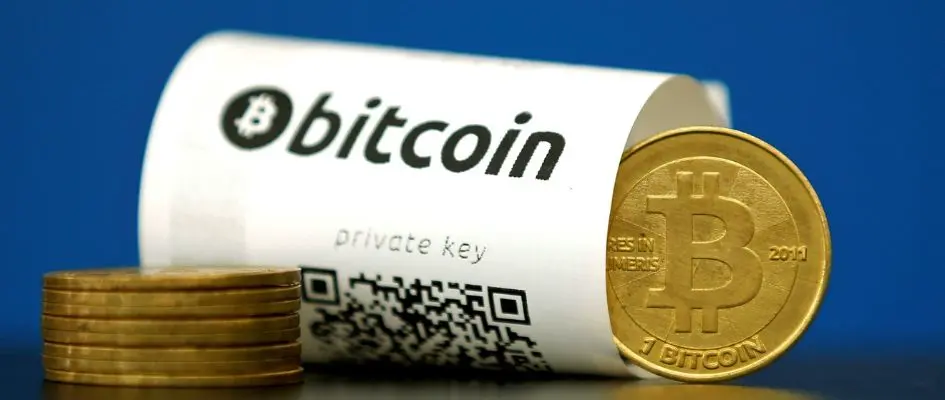
Sep 15,2023
Axie Infinity overtakes all other gainers as Bitcoin holds above $26,000
Summary of the 15th of September's cryptocurrency price: The value of the entire market increased to $1.06 trillion.The oldest and most valuable cryptocurrency in the world, Bitcoin (BTC), was able to hold above the $26,000 level early on Friday. The majority of well-known altcoins, such as Ethereum (ETH), Dogecoin (DOGE), Ripple (XRP), Litecoin (LTC), and Solana (SOL), finished in the green. With an increase of more than 11% over the course of a day, Axie Infinity (AXS) eventually emerged as the top gainer. The biggest loser over the past 24 hours was ApeCoin (APE), which fell by about 4 percent. At the time of writing, the market capitalization of all cryptocurrencies was $1.06 trillion, up 1.16 percent over the previous 24 hours.Bitcoin Price TodayAccording to CoinMarketCap, the price of one bitcoin was $26,631.67, up 1.50 percent over the previous day. Bitcoin was trading at Rs 22.87 lakh, according to Indian market WazirX.Ethereum Price TodayAt the time of writing, the price of ETH was $1,632.65 and had increased by 0.89 percent over the previous day. According to WazirX, the price of ethereum in India was Rs 1.40 lakh.Dogecoin Price TodayCurrently trading at $0.062143, DOGE saw a 24-hour increase of 1.41 percent, according to statistics from CoinMarketCap. Dogecoin's price in India was Rs 5.38, according to WazirX.Litecoin Price TodayLitecoin gained 4.21 percent throughout the course of a day. Its price at the time of writing was $63.13. The cost of LTC in India was Rs 5,396.64.Ripple Price TodayThe price of XRP was $0.4995, up 3.09 percent over the previous day. The price of ripple was Rs 43.20, according to WazirX.Solana Price TodayThe price of solana was $19.15, up 1.83 percent over the previous day. According to WazirX, the cost of SOL in India was Rs 1,646.80.
Read More
.webp)
Sep 06,2023
Bitcoin is still trading below $26,000, while Astar is the top gainer
Quick analysis of the cryptocurrency pricing on September 6: The value of the world market was $1.04 trillion.The world's oldest and most valuable cryptocurrency, Bitcoin (BTC), was trading below $26,000 in the early hours of Wednesday. Ethereum (ETH), Dogecoin (DOGE), Ripple (XRP), Litecoin (LTC), and Solana (SOL), among other well-known altcoins, all finished in the red. With a gain of about 7 percent over the course of a day, the Astar (ASTR) token went on to become the greatest gainer. With a 24-hour decline of more than 4%, Toncoin (TONNE) emerged as the largest loser. The market capitalization of all cryptocurrencies was $1.04 trillion at the time of writing, up 1% over the previous day.Bitcoin Price TodayAccording to CoinMarketCap, the price of one bitcoin was $25,778.34, up 0.52 percent over the previous day. Bitcoin was trading at Rs 22.51 lakh, according to Indian market WazirX.Ethereum Price TodayAt the time of writing, the price of ETH was $1,633.40, an increase of 1.23 percent over the previous day. According to WazirX, the price of ethereum in India was Rs 1.44 lakh.Dogecoin Price TodayAs of right now, DOGE is trading at $0.06422 on CoinMarketCap, up 1.66 percent over the previous day. According to WazirX, the price of Dogecoin in India was Rs 5.54.Litecoin Price TodayWithin a day, Litecoin fell by 0.10 percent. It was currently trading at $63.26 at the time of writing. The cost of LTC was Rs 5,502.04 in India.Ripple Price TodayThe price of XRP was $0.5043, down 0.01 percent over the previous 24 hours. The price of ripple was Rs 44.44, according to WazirX.Solana Price TodayThe price of solana was $20.23, up 4.97 percent over the previous day. According to WazirX, the cost of SOL in India was Rs 1,791.98.
Read More
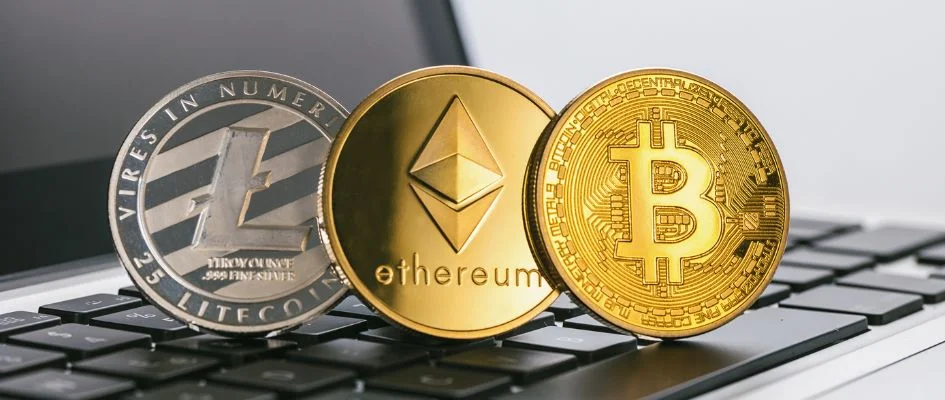
Sep 04,2023
After a court supports a grayscale ETF, bitcoin increases
In response to a U.S. court ruling in favour of Grayscale Investments (GBTC) over the Securities and Exchange Commission in Grayscale's application for its bitcoin ETF, the price of cryptocurrencies rallied on Tuesday, with bitcoin serving as the leader.The Treasury Department on Friday put up new cryptocurrency tax regulations, according to the Wall Street Journal. The IRS and taxpayers will get annual reports on 1099 forms from cryptocurrency exchanges starting in 2026 that detail the gross revenues from transactions. The corporations will be compelled to disclose the cost basis, or the amount that customers paid for digital assets, by the year 2027.Mid-August saw a decline in cryptocurrency prices, much of which was caused by news that SpaceX had sold off its bitcoin holdings.Cryptocurrency Price ActionFollowing the court ruling on Tuesday, Bitcoin increased to around $27,900. Prior to the announcement, it was trading close to two-month lows at roughly $26,000. On July 13, Bitcoin reached a 2023 high of $31,809, but since July 24, it has been unable to recapture its $30,000 level. The largest cryptocurrency in the world has recovered 68.6% so far in 2018.Its lowest price since June, Ethereum rose to $1,740 on Tuesday from $1,640 in the morning. Following its Shanghai-market transition to a proof-of-stake network on April 13, Ethereum reached a peak of $2,139 on April 16 – its highest level since May 2022. To date, the No. 2 cryptocurrency has increased 45%.Cryptocurrency Prices Heatmap:Investments in digital assets are very erratic. Investors should keep in mind the same primary goals despite potential differences between cryptocurrency's fundamentals and technical indicators. First, keep yourself safe by understanding when to sell, trim losses, or take profits. Second, get ready to make money if the price of bitcoin starts to increase.In spite of their initial promise, cryptocurrencies have not proven to be effective inflation hedges. Instead, they have followed the broad indexes' trajectory. To keep up with daily market movements, read The Big Picture and Market Pulse.
Read More
.webp)
Sep 04,2023
When Bitcoin falls below $26,000, all altcoins experience a downturn. Top Gainer for Bitcoin
Quick summary of the cryptocurrency price on September 1: On Saturday morning, the market capitalization of all cryptocurrencies was $1.04 trillion.On Saturday morning, Bitcoin (BTC) and Ethereum (ETH), two of the most valuable crypto coins, were trading at over $25,700 and $1,600, respectively. Other well-known cryptocurrencies, including as Dogecoin (DOGE), Solana (SOL), Ripple (XRP), and Litecoin (LTC), showed gains despite overall price declines in all markets. The Toncoin (TONNE) token, which saw a 24-hour increase of more than 11.68 percent, ended up being the top gainer. On the other hand, KuCoin Token (KCS) ended up being the greatest loser. The worldwide crypto market cap was $1.04 trillion at the time of writing, down 0.67 percent over the previous day.Bitcoin Price TodayAccording to CoinMarketCap, the price of one bitcoin was $25,797.29, a drop of 0.85 percent over the previous 24 hours. Bitcoin was trading at Rs 22.72 lakh, according to the Indian market WazirX.Ethereum Price TodayAt the time of writing, the price of ETH was $1,631.59, reflecting a 1.00 percent 24-hour decline. According to WazirX, the price of ethereum in India was Rs 1.44 lakh.Dogecoin Price TodayAccording to data from CoinMarketCap, the 24-hour loss for DOGE, which is presently trading at $0.06364, was 0.07 percent. Dogecoin's price in India was Rs. 5.5674, according to WazirX.Litecoin Price TodayIn the last day, Litecoin fell by 0.92 percent. Its price at the time of writing was $63.32. In India, LTC was priced at Rs 5,526.00.Ripple Price TodayThe price of XRP was $0.4961, down 1.89 percent over the previous 24 hours. WazirX reported that the price of ripple was Rs 43.5000.Solana Price TodaySolana price was $19.54, down 1.64 percent over the previous 24 hours. According to WazirX, the price of SOL in India was Rs 1,730.56.
Read More
.webp)
Aug 31,2023
Top Coins Land In The Red But Bitcoin Remains Above $27,000
Quick analysis of the cryptocurrency pricing on August 31: The value of the entire market fell to $1.08 trillion.Despite the price charts being dominated by reds in the early hours of Thursday, Bitcoin (BTC) remained at the $27,000 level. Popular altcoins witnessed slight declines across the board, including Ethereum (ETH), Dogecoin (DOGE), Ripple (XRP), Litecoin (LTC), and Solana (SOL). The market's fear and greed index, according to CoinMarketCap, was at 40 (out of 100), which is a neutral level. With a 2 percent increase over the course of a day, the Mantle (MNT) token ended up being the greatest winner of the group. With a drop of more than 5% over the course of a day, ASTR continued to be the greatest loser for the second day in a row. At the time of writing, the market capitalization of all cryptocurrencies was $1.08 trillion, down 0.92 percent over the previous day.Bitcoin Price TodayAccording to CoinMarketCap, the price of one bitcoin was $27,194.70, a drop of 0.71 percent over the previous 24 hours. BTC's price was Rs 23.55 lakh, according to Indian exchange WazirX.Ethereum Price TodayAt the time of writing, the price of ETH was $1,700.11, reflecting a 24-hour decline of 0.94 percent. According to WazirX, the price of ethereum in India was Rs 1.48 lakh.Dogecoin Price TodayCurrently trading at $0.06544, DOGE saw a 24-hour loss of 0.34 percent, according to statistics from CoinMarketCap. Dogecoin's price in India was Rs 5.70, according to WazirX.Litecoin Price TodayIn the past day, Litecoin fell by 0.64 percent. Its price at the time of writing was $67.36. The cost of LTC was Rs 5,825.26 in India.Ripple Price TodayThe price of XRP was $0.5264, down 1.18 percent over the previous 24 hours. The price of ripple was Rs 45.51, according to WazirX.Solana Price TodayThe price of solana was $20.64, down 4.45% from the previous day. According to WazirX, the price of SOL in India was Rs 1,830.50.
Read More
.webp)
Aug 31,2023
Top Coins Bitcoin, Ethereum, and Others Trade Downward, with dYdX Becoming the Top Gainer
Quick analysis of the cryptocurrency pricing on August 28: The value of the world market was $1.05 trillion.The oldest and most valuable cryptocurrency in the world, Bitcoin (BTC), was able to hold onto its $26,000 level despite little fluctuation in other major coins. Popular altcoins including Solana (SOL), Dogecoin (DOGE), Ripple (XRP), Litecoin (LTC), and Ethereum (ETH) all saw sideways trading. The market's fear and greed index, according to CoinMarketCap, was 35 (out of 100). The dYdX (DYDX) token, with a 24-hour increase of more than 4 percent, turned out to be the greatest gainer of the group. THETA lost the most money during the course of a day, falling more than 4%. At the time of writing, the market valuation of all cryptocurrencies was $1.05 trillion, representing an increase of 0.02 percent over the previous day.Bitcoin Price TodayAccording to CoinMarketCap, the price of one bitcoin was $26,002.83, a decrease of 0.02 percent over the previous 24 hours. WazirX, an Indian exchange, reported that the price of one bitcoin was Rs 23 lakh.Ethereum Price TodayAt the time of writing, the price of ETH was $1,649.12, representing a 24-hour gain of 0.12 percent. According to WazirX, the price of Ethereum in India was Rs 1.49 lakh.Dogecoin Price TodayCurrently trading at $0.06256, according to data from CoinMarketCap, DOGE suffered a 24-hour loss of 0.39 percent. Dogecoin's price in India as of WazirX was Rs 5.62.Litecoin Price TodayIn the last day, Litecoin fell by 0.43 percent. Its price at the time of writing was $64.84. In India, the cost of LTC was Rs 5,702.Ripple Price TodayThe price of XRP was $0.5184, down 1.07 percent over the previous 24 hours. The price of ripple was Rs 45.70, according to WazirX.Solana Price TodayThe price of solana was $20.49, up 1.05 percent over the previous day. WazirX said that SOL cost Rs 1,813 in India.
Read More
.webp)
Aug 27,2023
Ethereum is above $1,650, Bitcoin is above $26,000, and Solana is down 5%
Bitcoin was once again under selling pressure, falling more than 1% to cling below $26,000-levels, while Ethereum followed suit but managed to keep above $1,650.In line with the declines in the traditional asset market, Bitcoin and other crypto tokens saw substantial declines in price on Friday. Global traders are anticipating the outcome of the Jackson Hole Symposium of the Federal Reserve, notably Chair Jerome Powell's speech scheduled for later in the day.After a brief recovery, selling pressure was once again there on Bitcoin, which saw a fall of more than 1% to barely retain levels of $26,000. In a similar vein, Ethereum, its biggest rival, too declined along similar lines but was able to maintain above $1,650. The day's price movement in the alternative currencies was on the lower side.On Friday, all other major crypto assets were trading significantly lower. As much as 5% of Solana's value was lost, while Polygon lost 3%. In the early hours, Dogecoin, Litecoin, Shiba Inu, Polkadot, XRP, Toncoin, Cardano, and Tron all experienced a 2% decline.The market capitalization of all cryptocurrencies was trading noticeably lower, rising down to $1.05 trillion-mark as it fell more than a percent in the previous day. The entire trade volume, however, decreased by more than 17% to $27.95 billion.
Read More
.webp)
Aug 27,2023
As Top Coins Experience a Bloodbath, Bitcoin Falls Below $26,000
Quick analysis of the cryptocurrency pricing on August 23: The $1.05 trillion market cap was not changed.The oldest and most valuable cryptocurrency in the world, Bitcoin (BTC), fell under the $26,000 threshold early on Wednesday. Other well-known altcoins, including as Ethereum (ETH), Dogecoin (DOGE), Ripple (XRP), Litecoin (LTC), and Solana (SOL), all had slight declines. The Sui (SUI) token saw the largest gain of the group, rising more than 10% in just one day. The largest loser, though, was THORChain (RUNE), which suffered a loss of about 10% during the course of a day.At the time of writing, the market capitalization of all cryptocurrencies was $1.05 trillion, down 0.47 percent over the previous day.Bitcoin Price TodayAccording to CoinMarketCap, the price of one bitcoin was $25,978.36, down 0.21 percent over the previous day. Bitcoin was trading at Rs 22.99 lakh, according to Indian market WazirX.Ethereum Price TodayAt the time of writing, the price of ETH was $1,630.73, representing a 24-hour loss of 0.01 percent. According to WazirX, the price of ethereum in India was Rs 1.48 lakh.Dogecoin Price TodayAccording to statistics from CoinMarketCap, the price of DOGE, which is now $0.06254, dropped 0.6% over the past 24 hours. Dogecoin's price in India as of WazirX was Rs 5.59.Litecoin Price TodayLitecoin lost 2.75 percent throughout the course of a day. Its price at the time of writing was $64.74. The cost of LTC was Rs 5,844.98 in India.Ripple Price TodayThe price of XRP was $0.5199, down 0.33 percent over the previous day. WazirX said that the price of ripple was Rs 46.0001.Solana Price TodayThe price of solana was $20.61, down 2.34 percent over the previous 24 hours. According to WazirX, the cost of SOL in India was Rs 1,879.90.
Read More
.webp)
Aug 21,2023
After a dramatic liquidation, Bitcoin and Ethereum suffer; altcoins drop by up to 18%
As a result of intense selling pressure, Bitcoin fell as much as 8% to dip below $26,500 levels, while Ethereum fell as much as 7% to cling to the $1,675 mark.On Friday, the price of Bitcoin and other popular cryptocoins traded in the deep red. A abrupt liquidation over the previous few hours caused $1 billion in losses as the price of bitcoin dropped to a two-month low and the digital asset markets experienced one of their biggest sell-offs of the year. The cryptocurrency market's trading volume abruptly increased.The biggest cryptocurrency tokens fell as much as 8% to dip below $26,500 levels, putting intense selling pressure on Bitcoin. Ethereum, its biggest rival, fell 7% to cling to the $1,675 mark. The host of tokens were bleeding up to 18%, which caused severe pain in the altcoins.The cryptocurrency market has fallen dramatically for a second day in a row. The cryptocurrency fear and greed index has fallen 13 points and, with a score of 37/100, has reached the fear zone for the first time in more than 5 months as a result of the widespread crypto market sell-off."A US judge granted approval to the SEC to file a motion to appeal the recent ruling which favoured Ripple Labs regarding retail sales of XRP," he continued. In other news, the Chinese Yuan, which is currently trading at its lowest level since 2007, may be devalued.On Friday, all other popular crypto coins were destroyed. XRP fell by as much as 17%, while Litecoin fell by as much as 14%. Shiba Inu and Dogecoin both had double-digit declines that reached 12%. Toncoin and Polygon both experienced 9% declines, while Solana experienced an 8% decline.The market capitalization of all cryptocurrencies was trading substantially lower, dropping near the $1.06 trillion mark after losing as much as 7% over the previous day. The total trade volume did, however, increase by almost 77% to $65.1 billion.
Read More
Related CryptoCurrencies
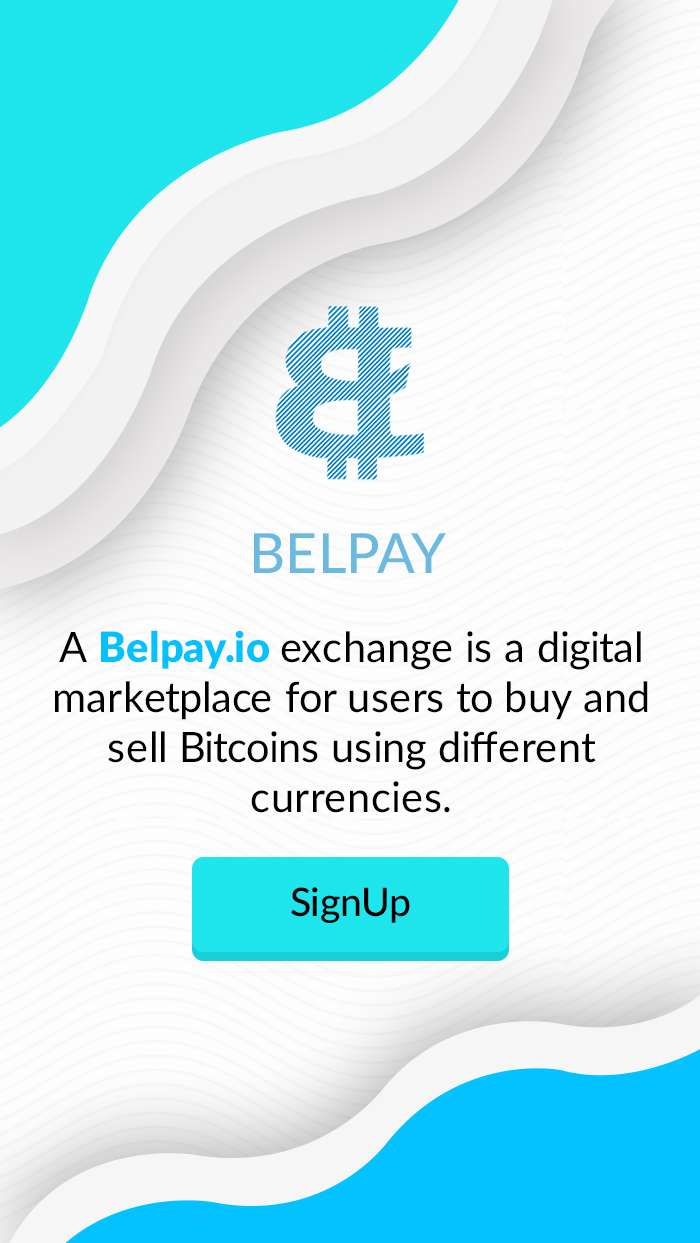
Recent News

WhiteBitcoin (WBTC) — Official Christmas & New Year Update
December 25, 2025
What Are VIP Web3 Wallet?
May 30, 2024
What Is Web3 and Why Does It Matter?
May 30, 2024
Cryptocurrency Price Today: Bitcoin Holds, Flare Gains Almost 35%
January 17, 2024© 2026 WBTC Price All Rights Reserved.

-min.jpg)
 (1)-min.jpg)
-min.jpg)

 White Bitcoin
White Bitcoin Bitcoin
Bitcoin Bitcoin Cash
Bitcoin Cash Bitcoin SV
Bitcoin SV Bitcoin Gold
Bitcoin Gold